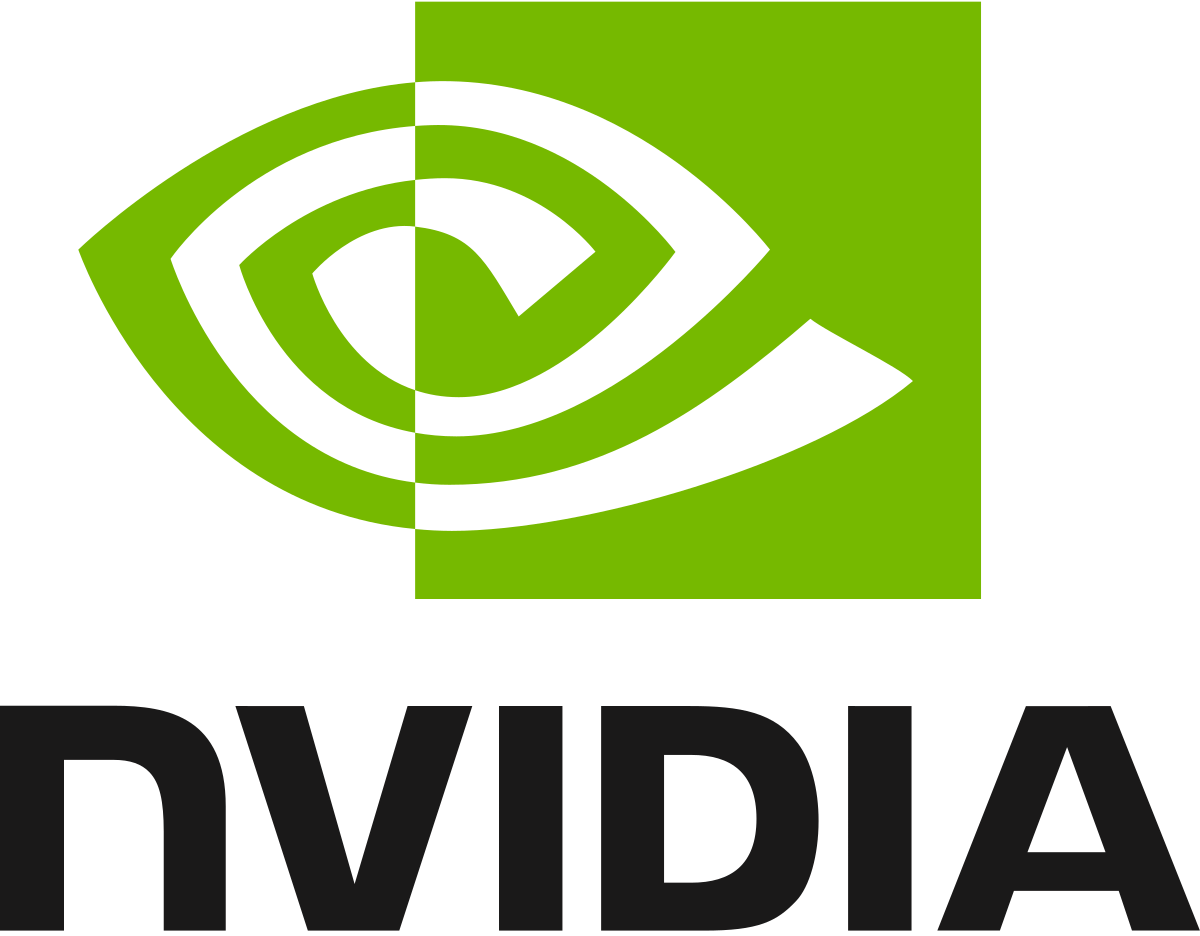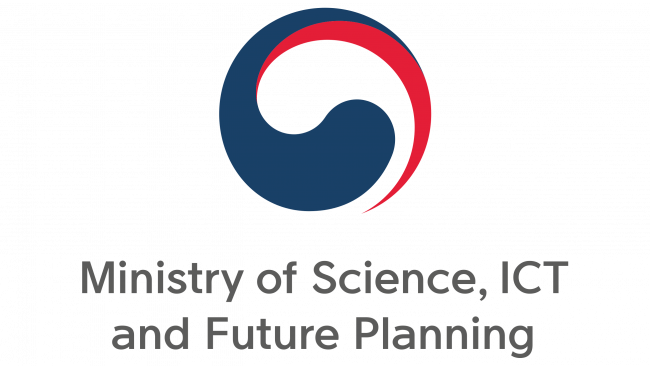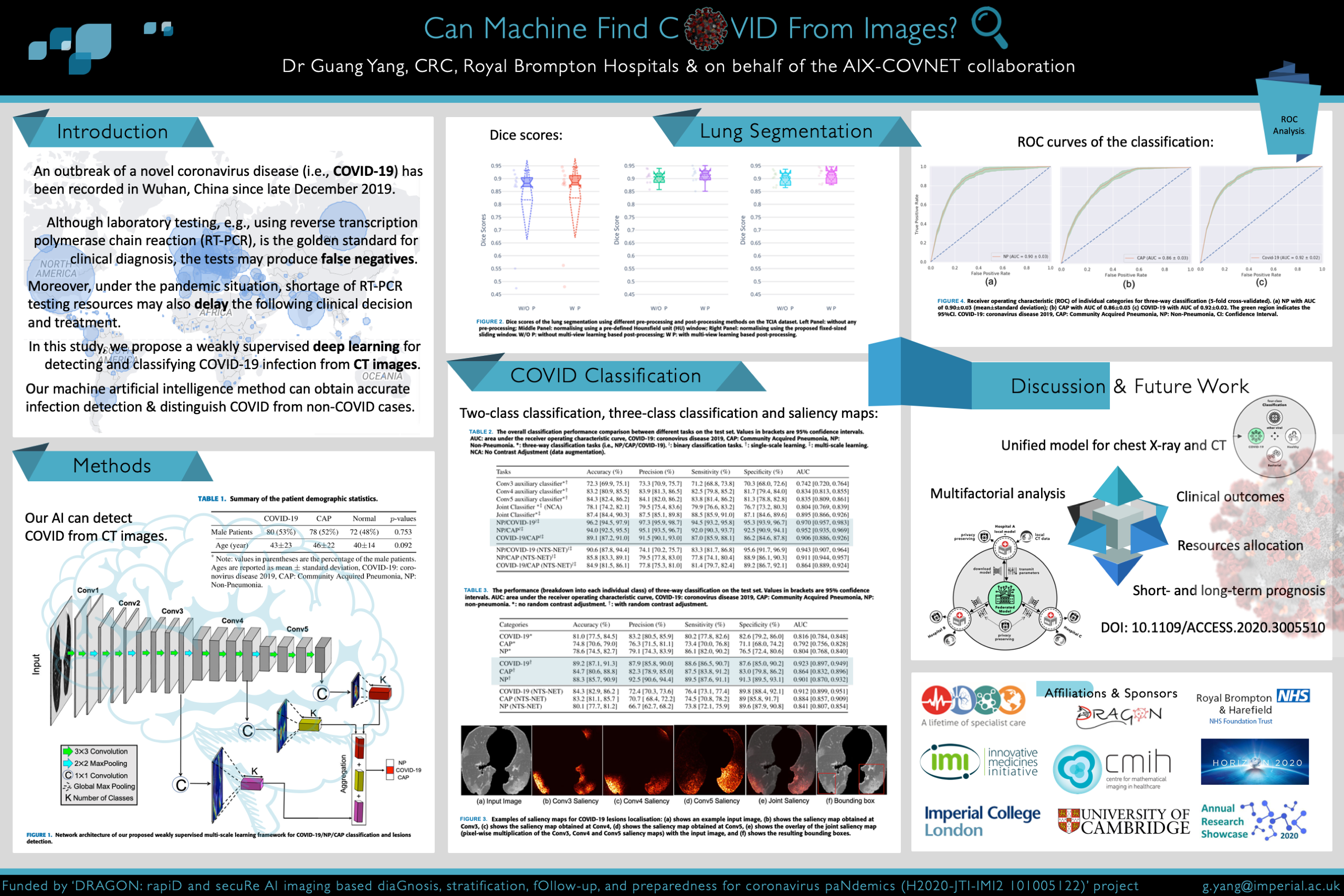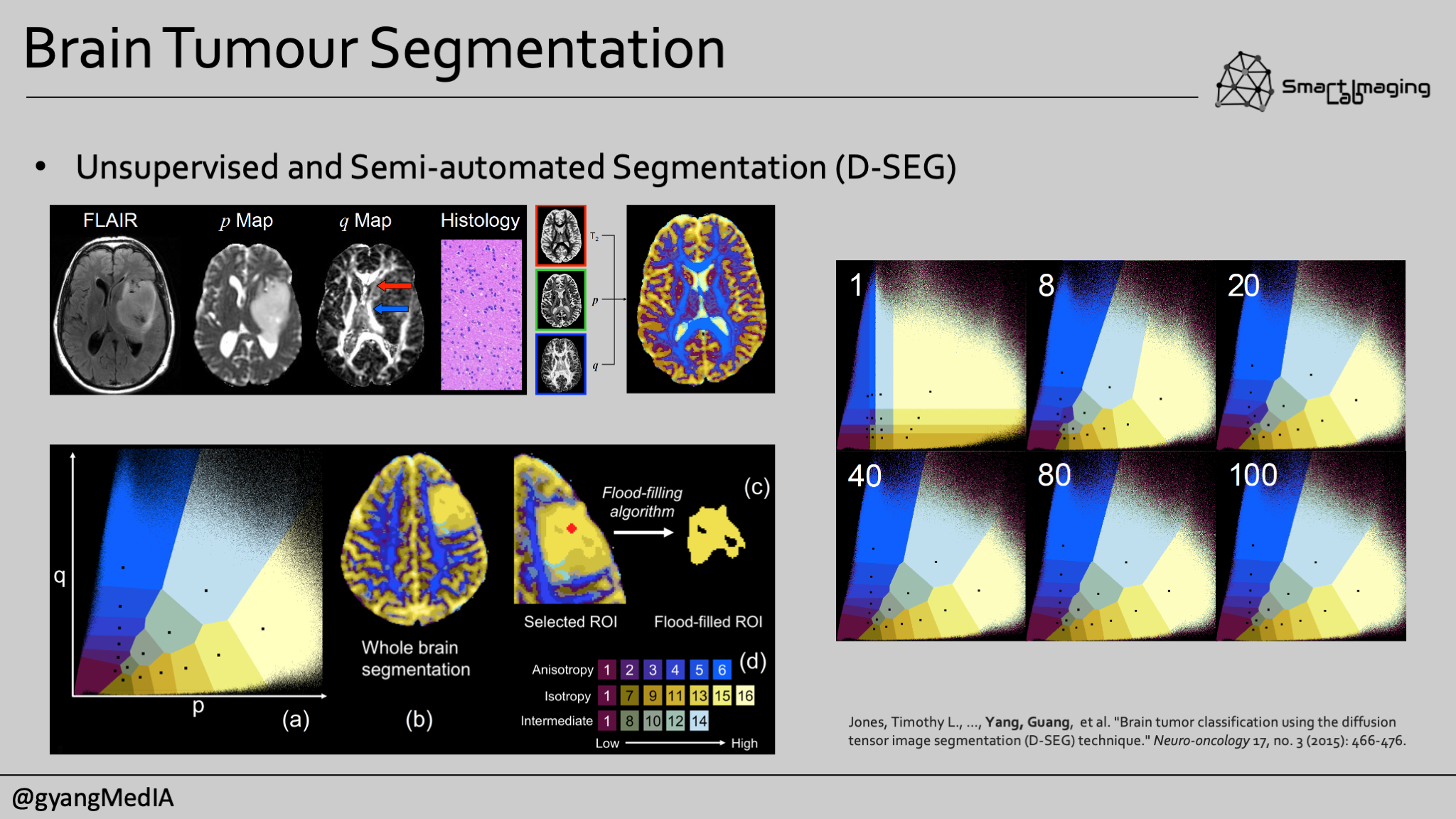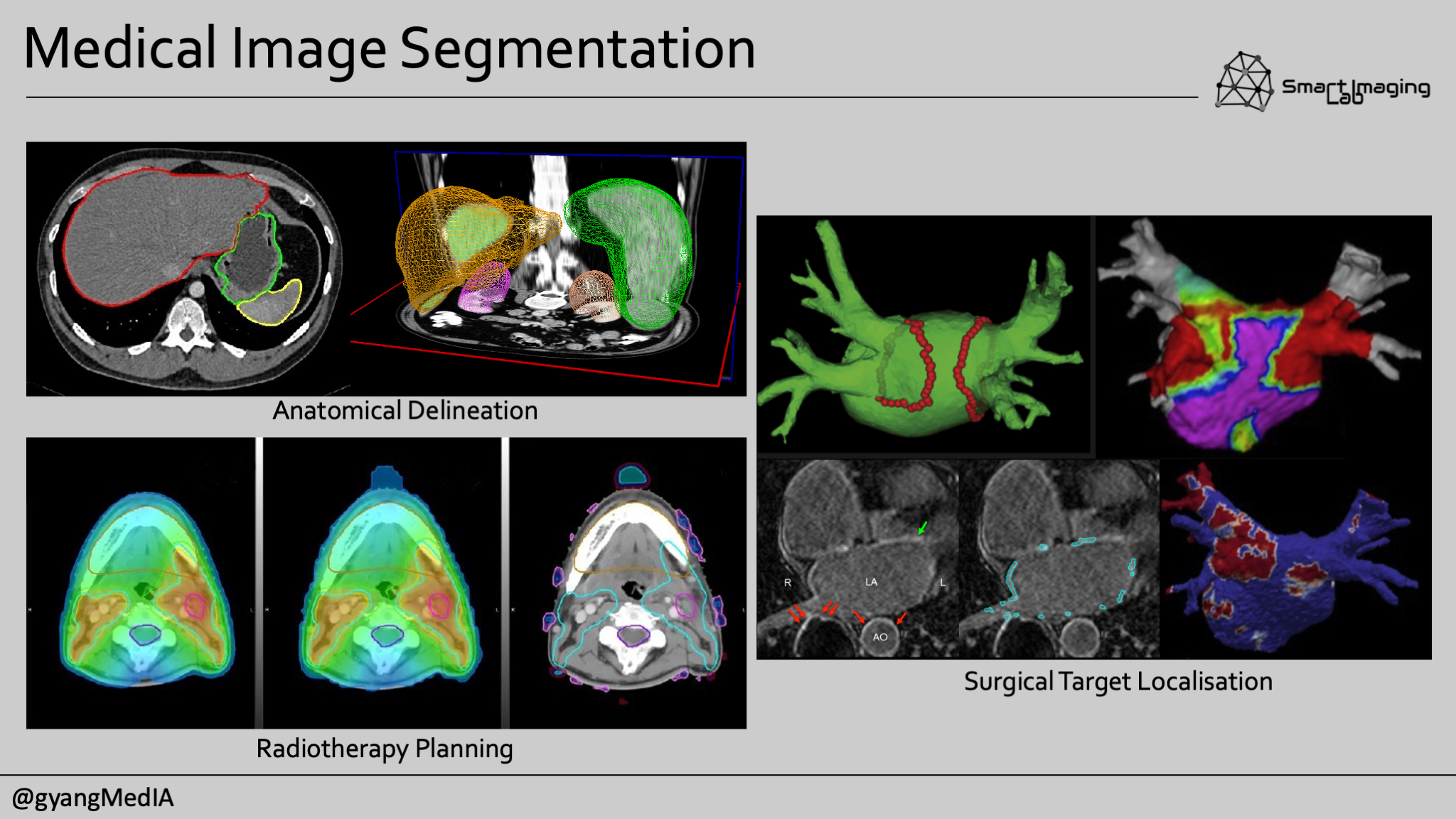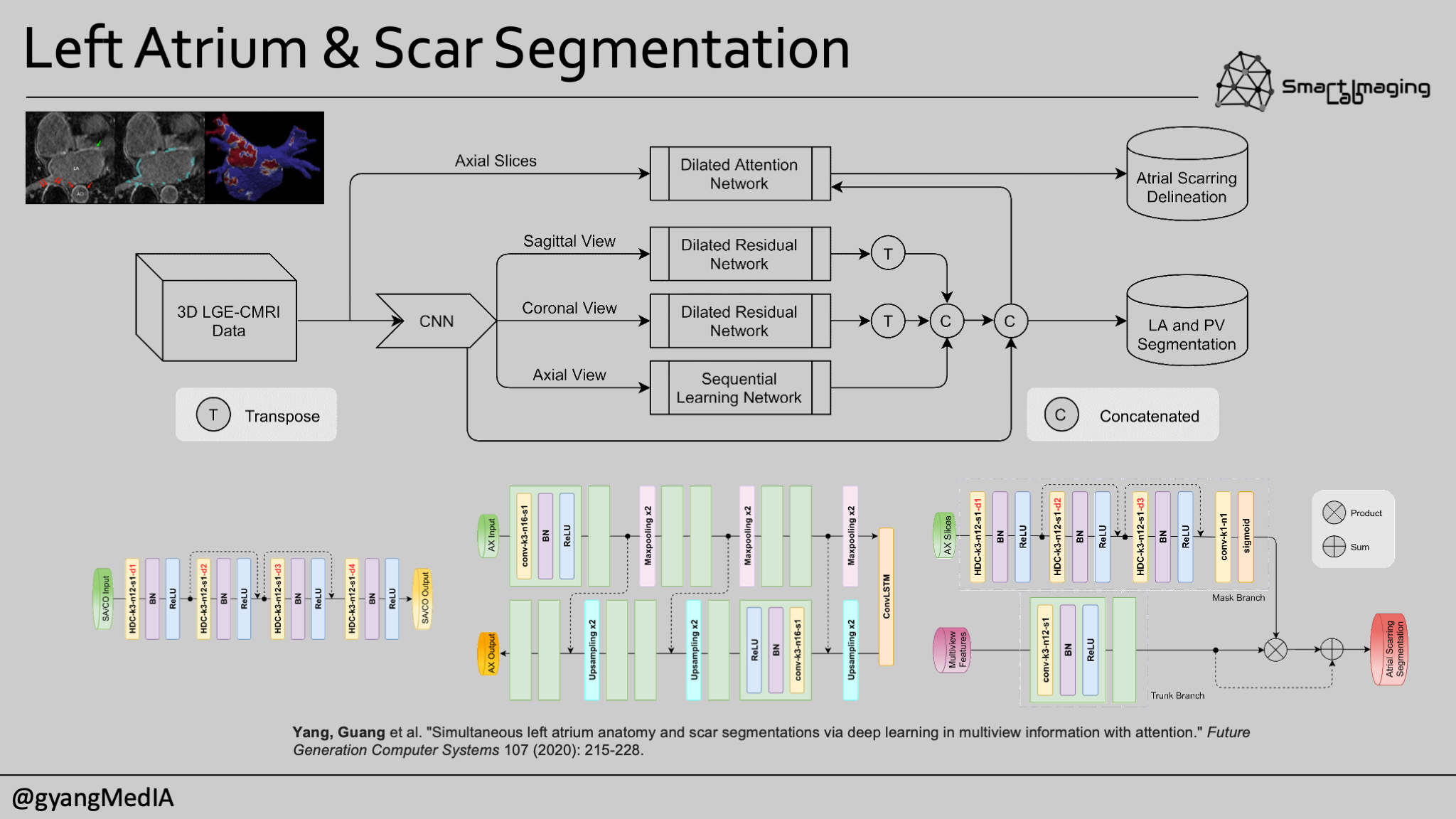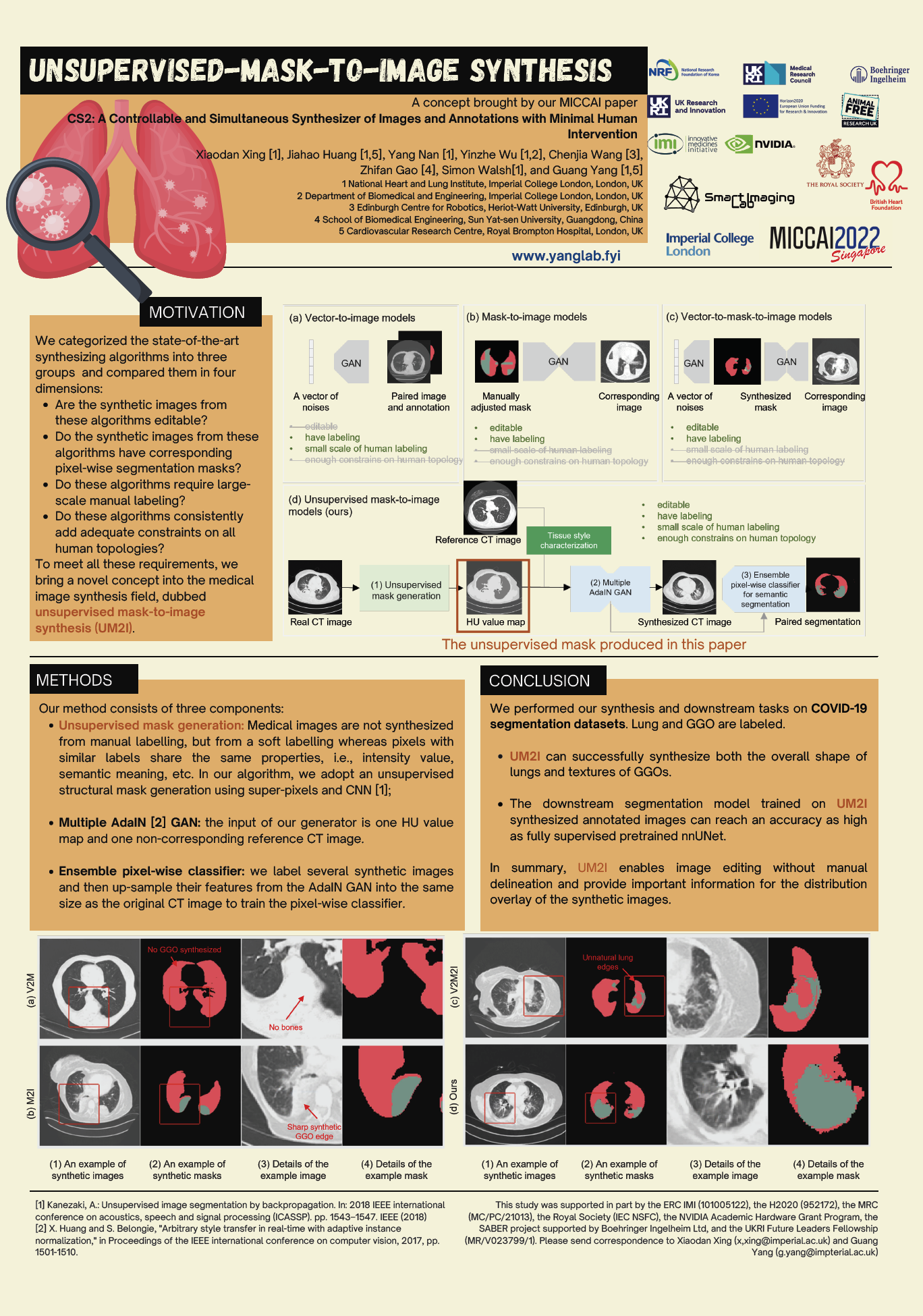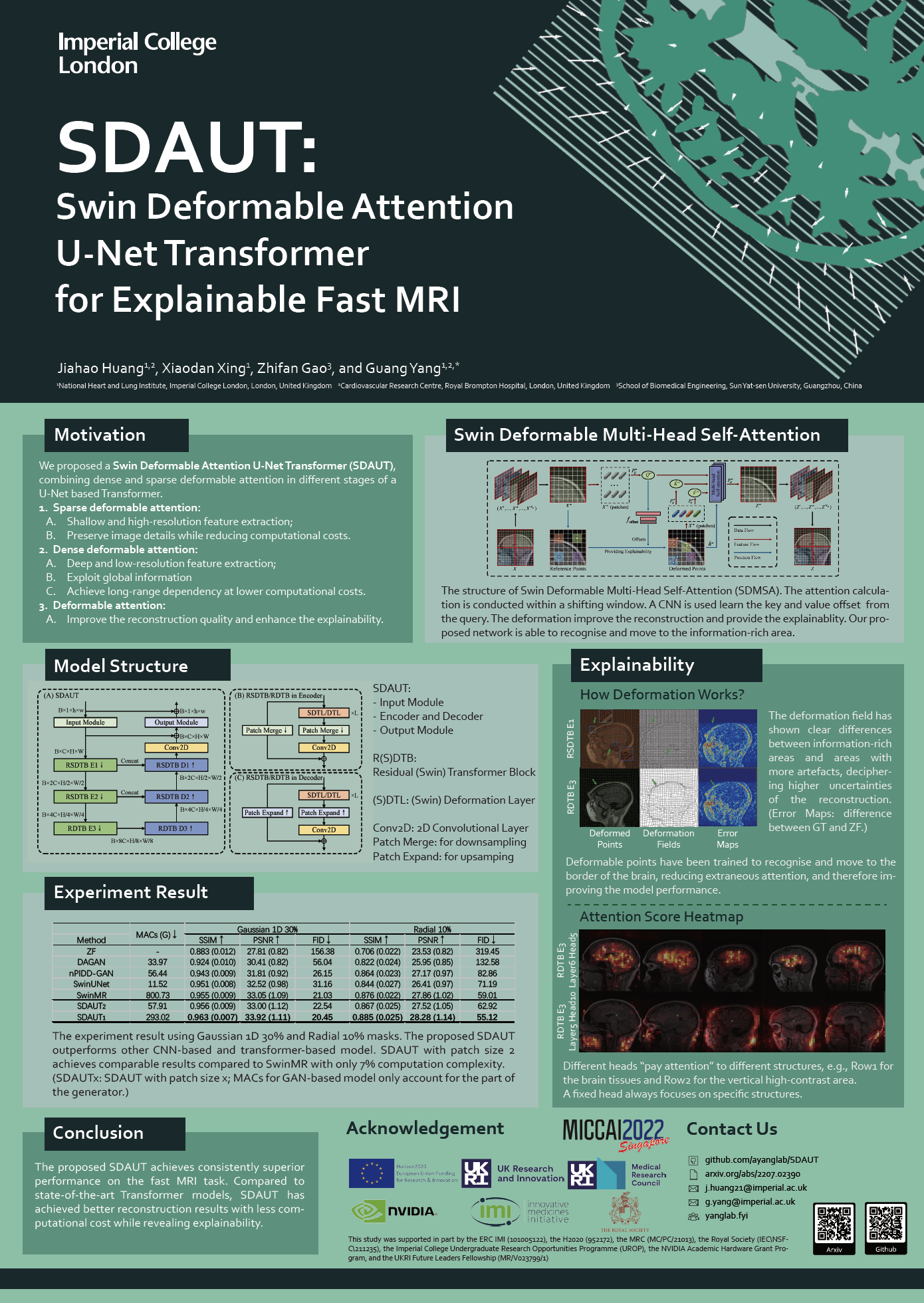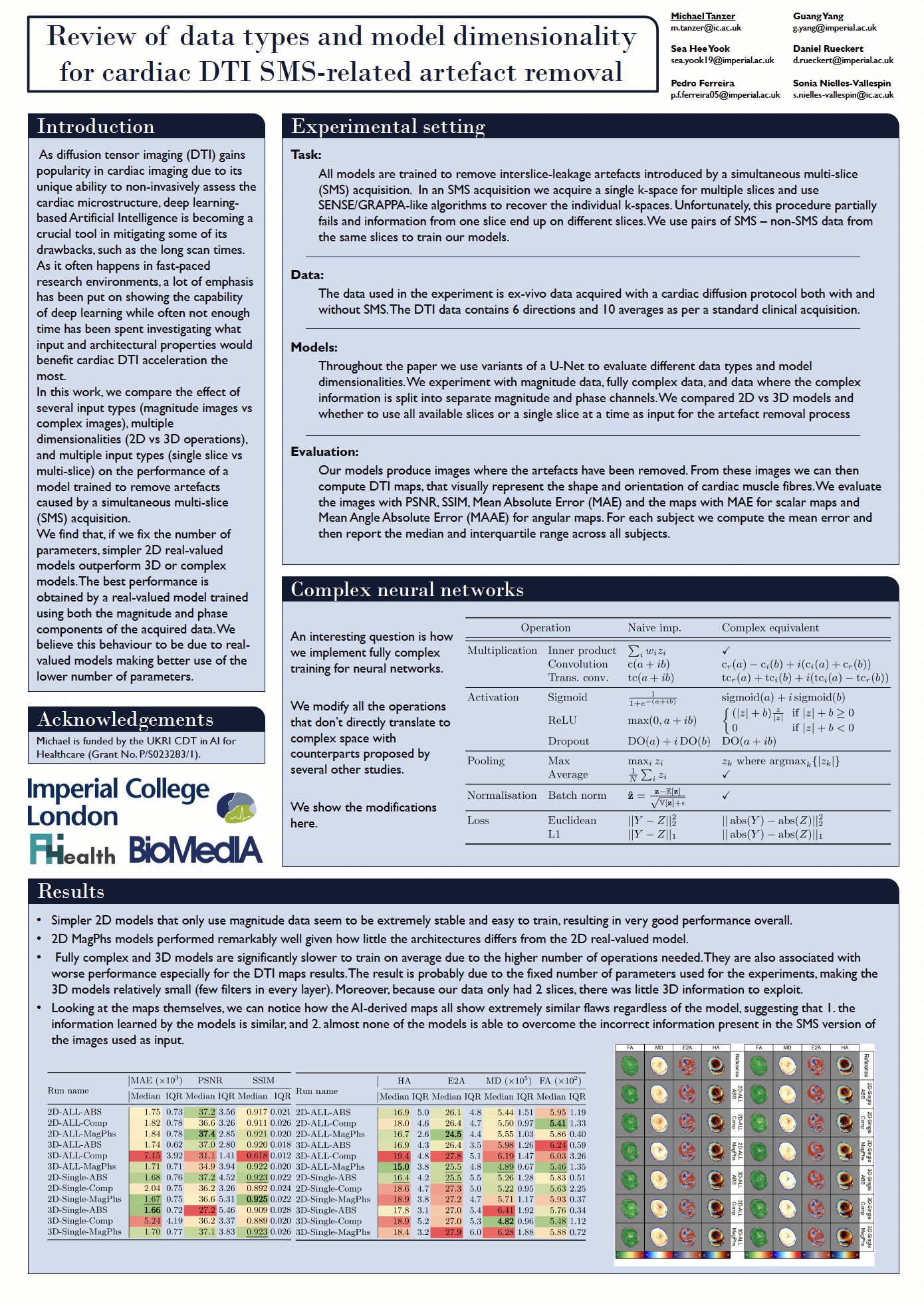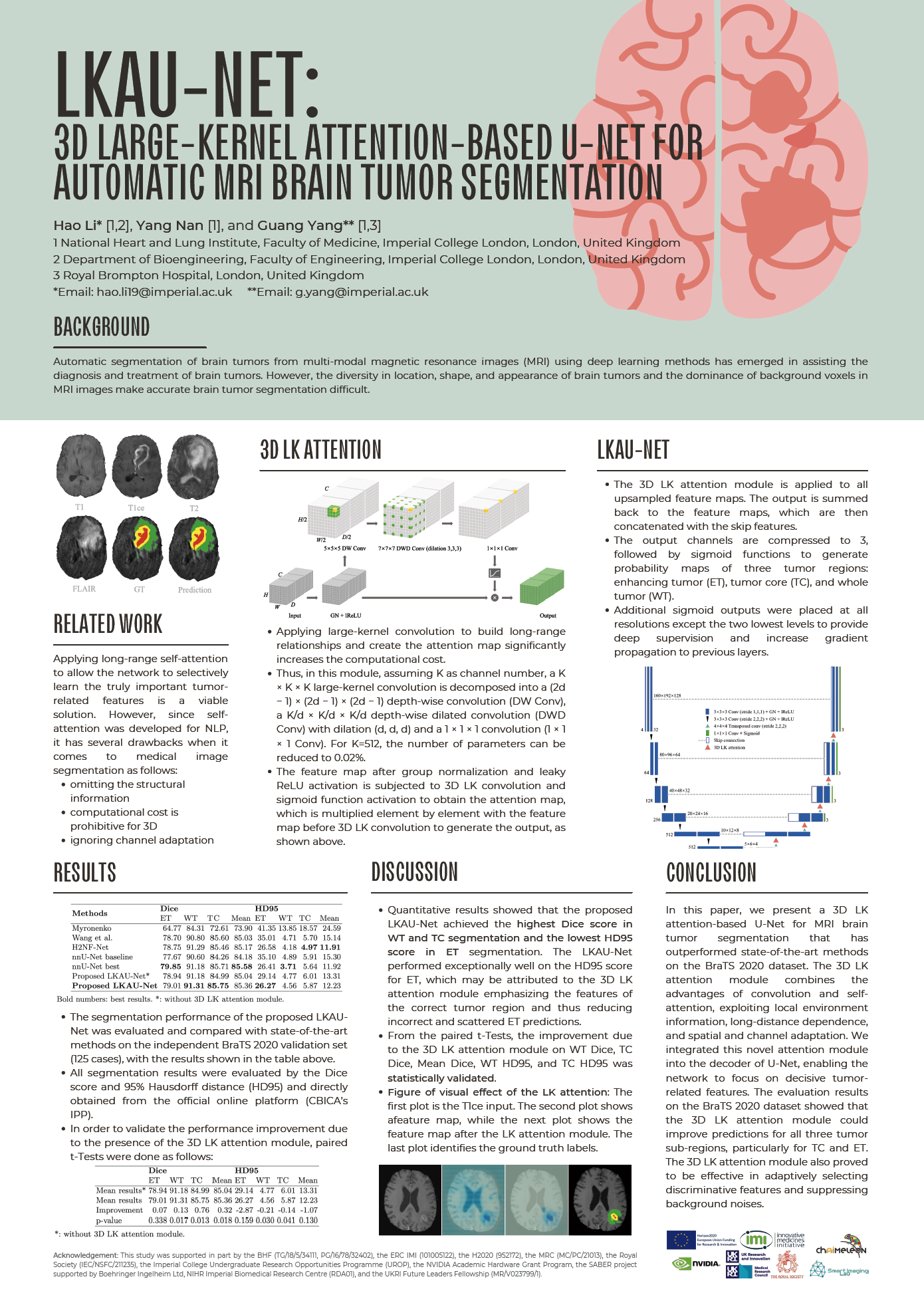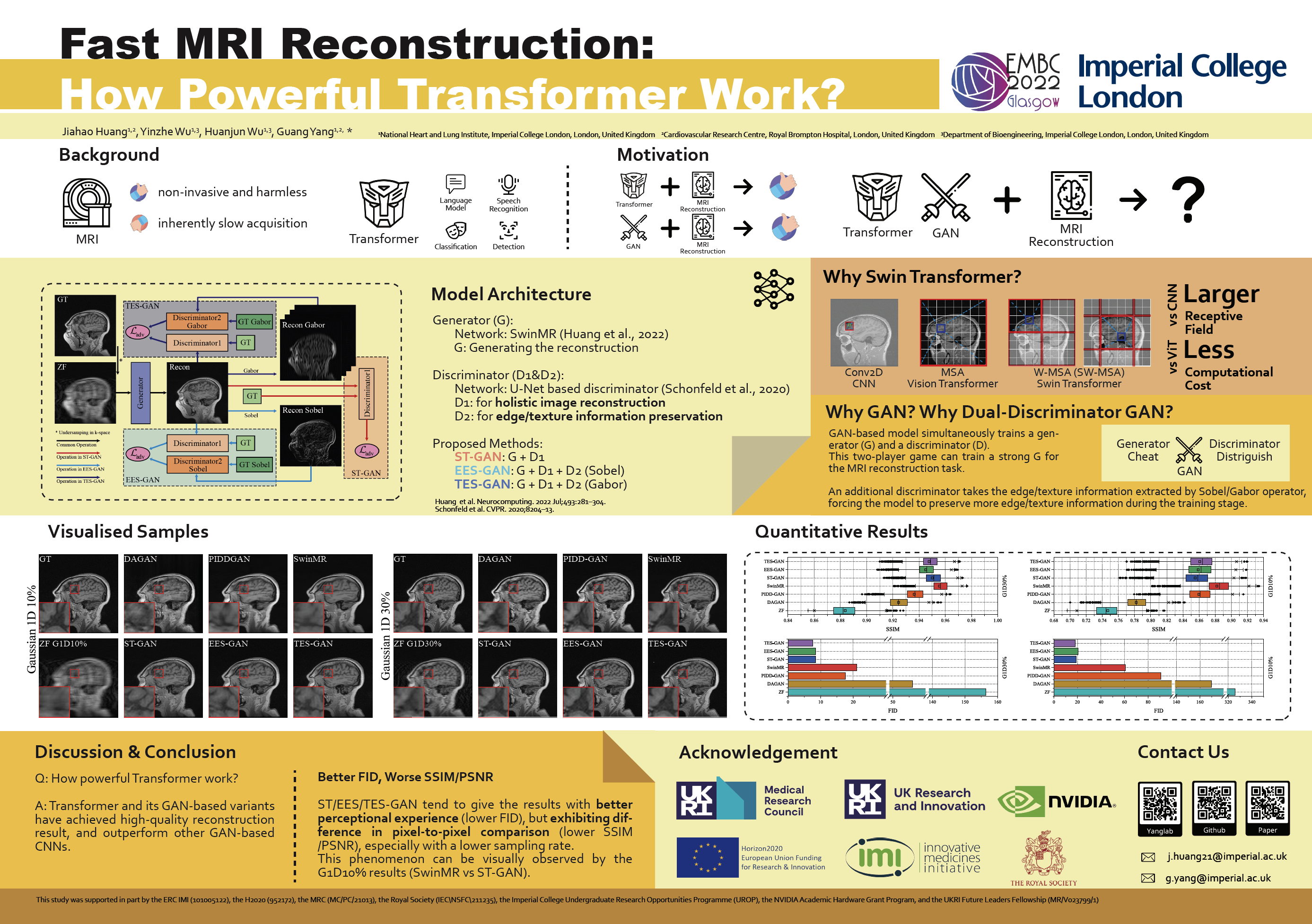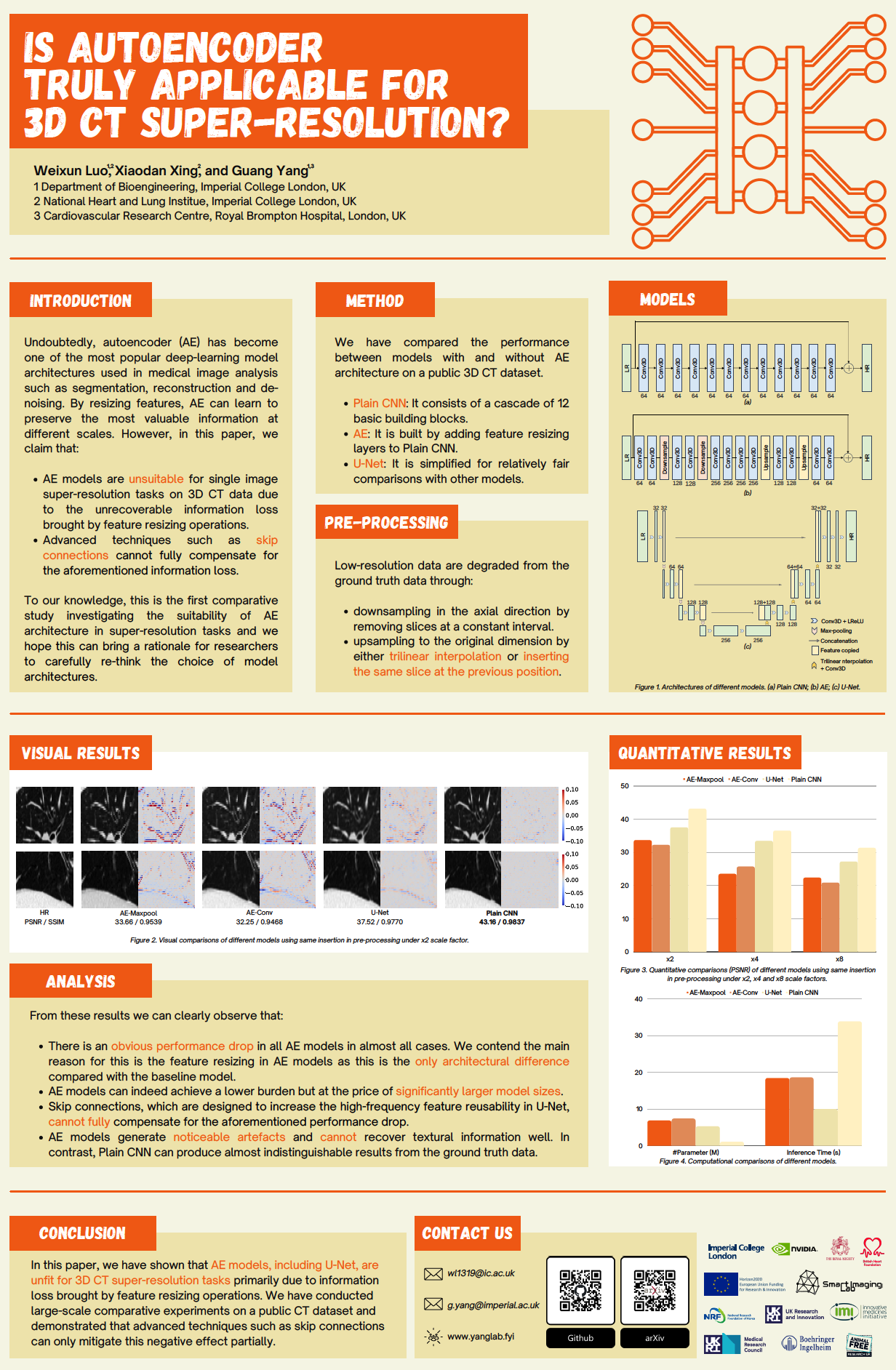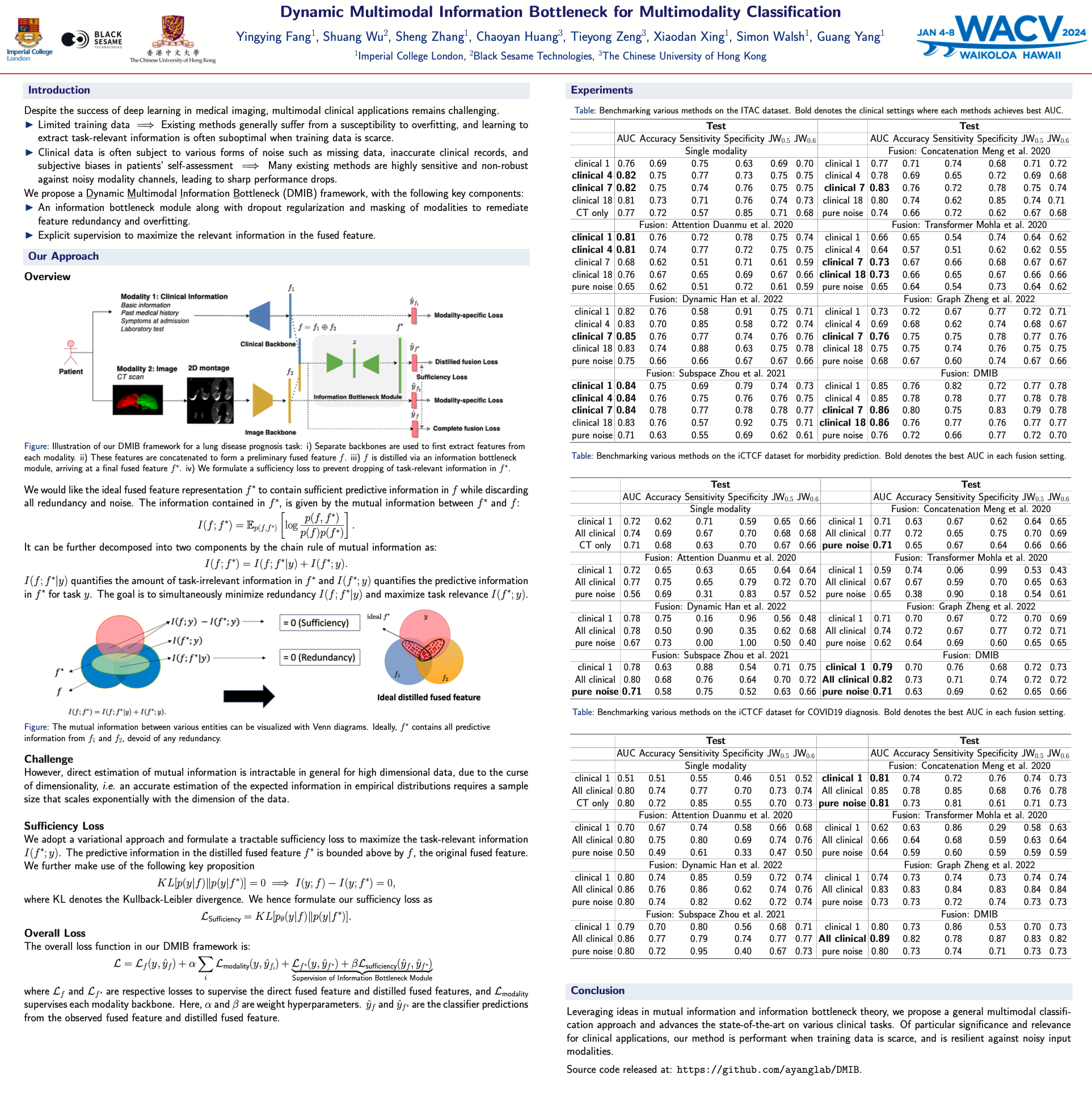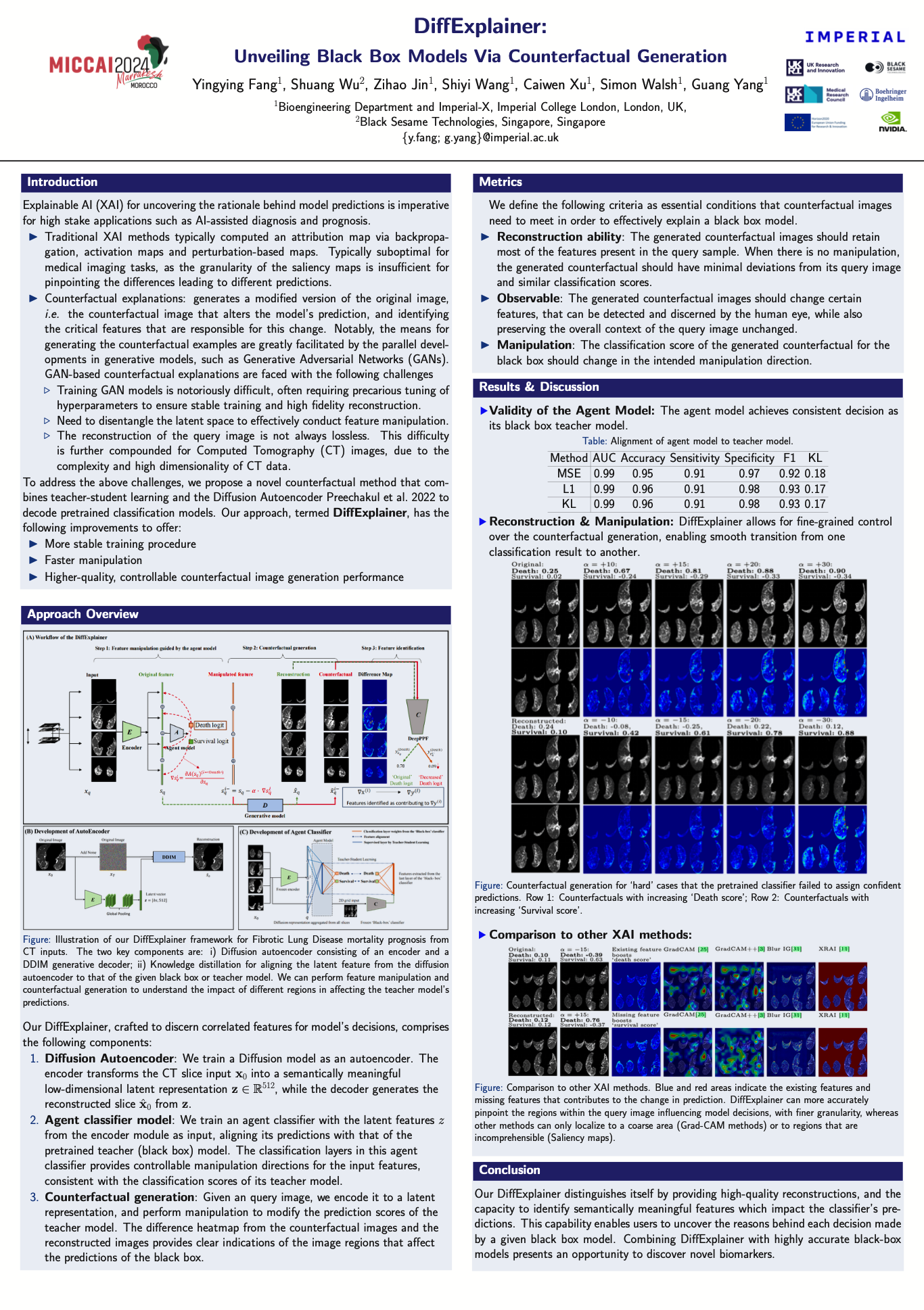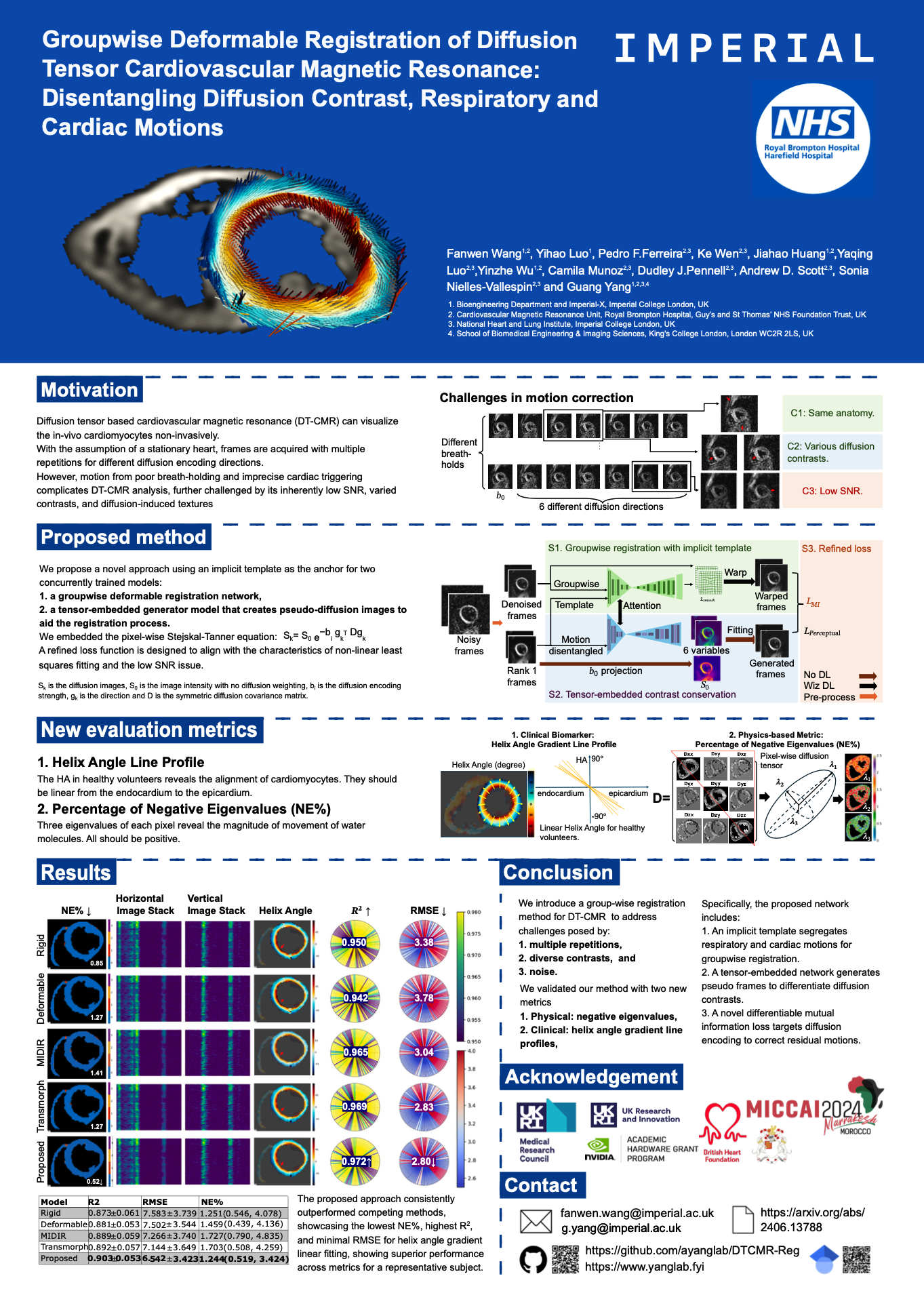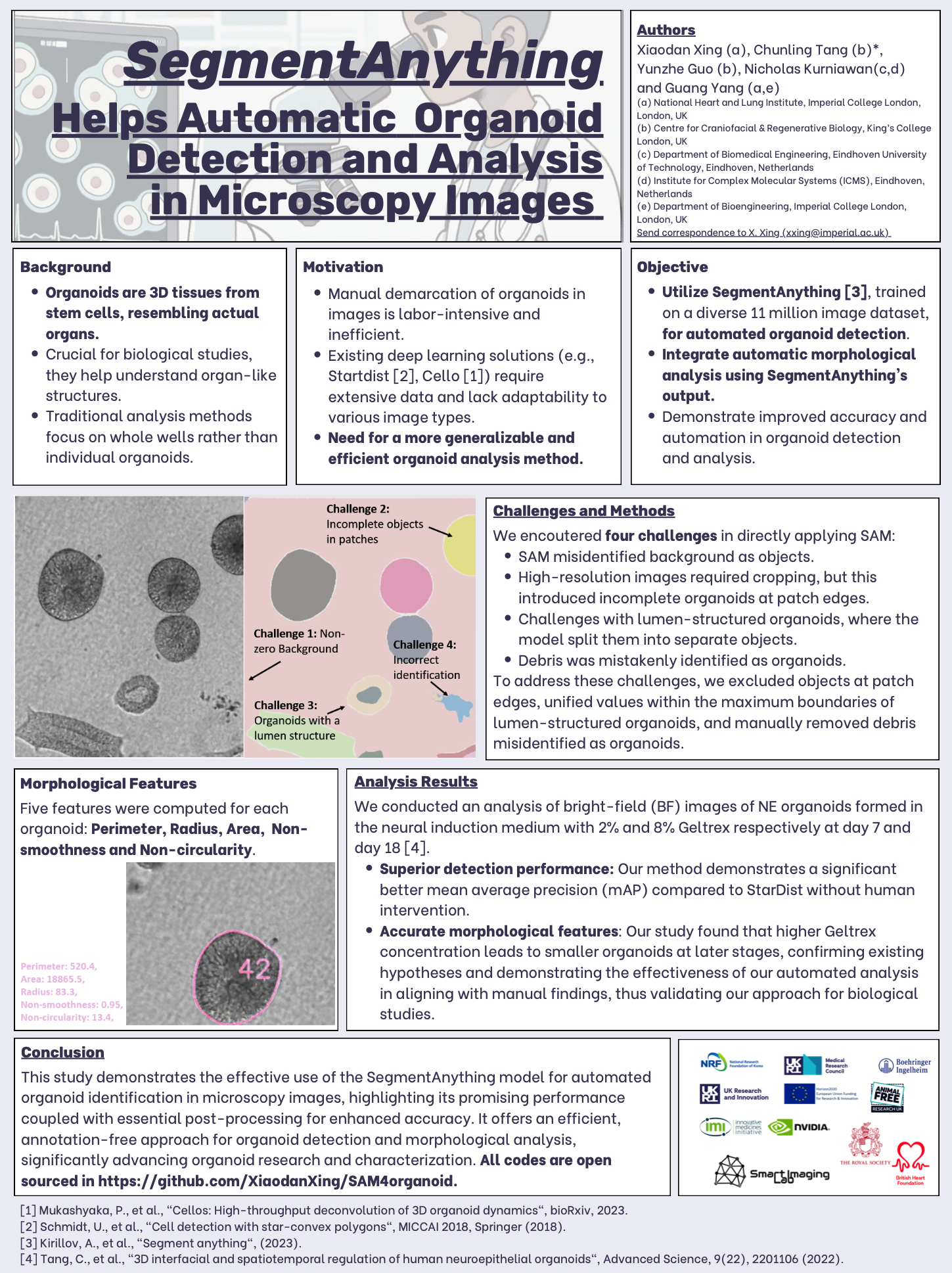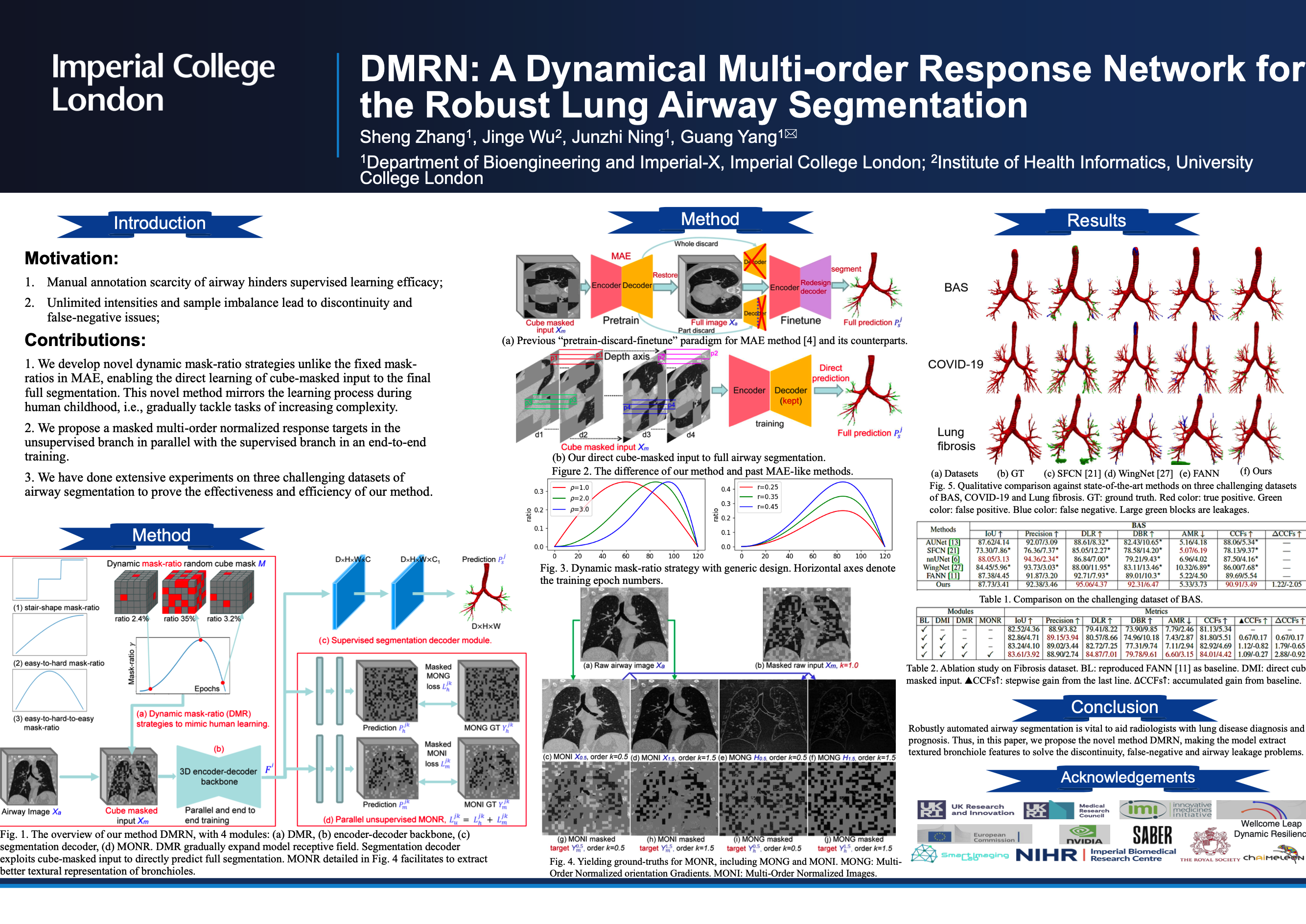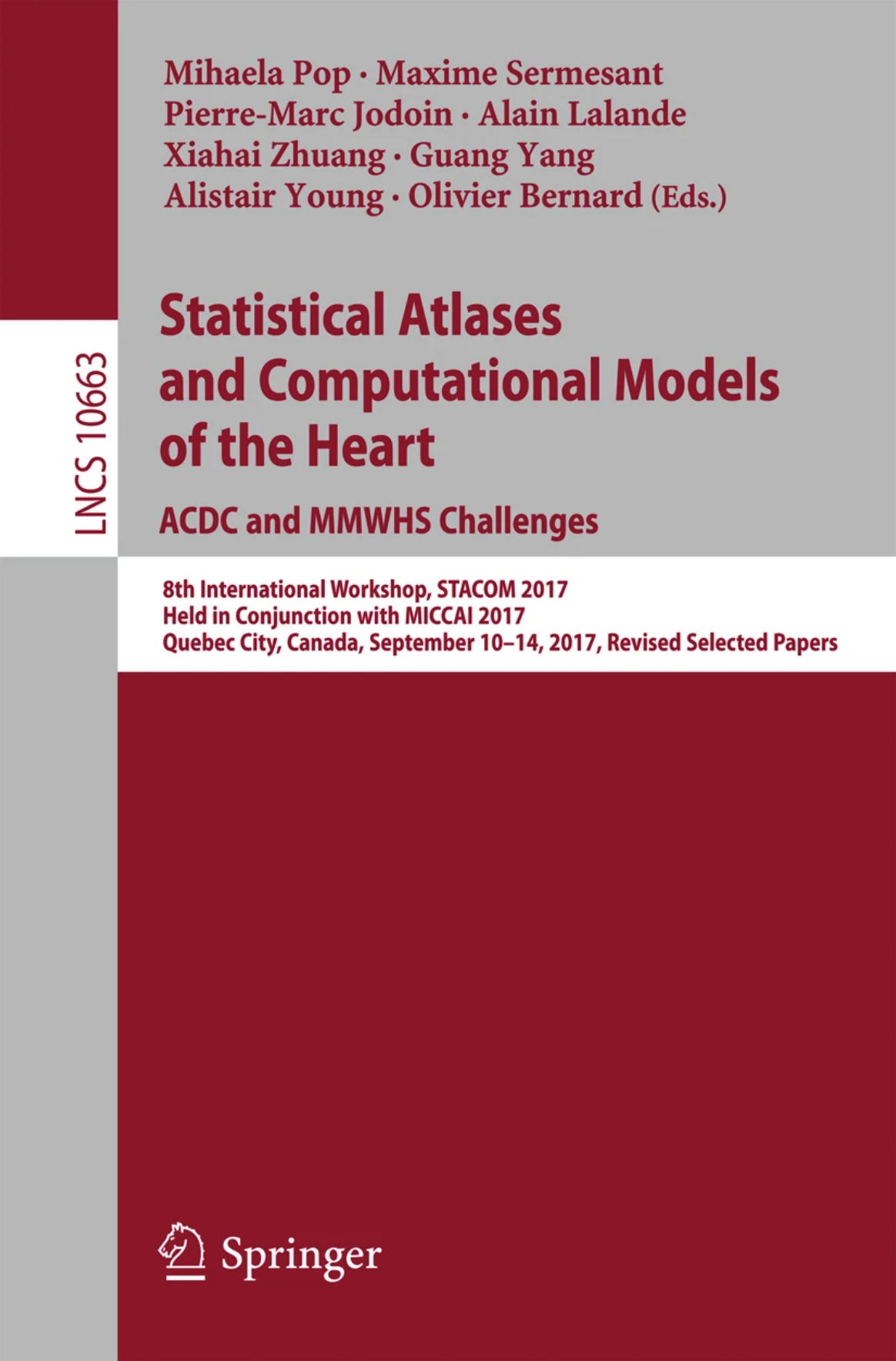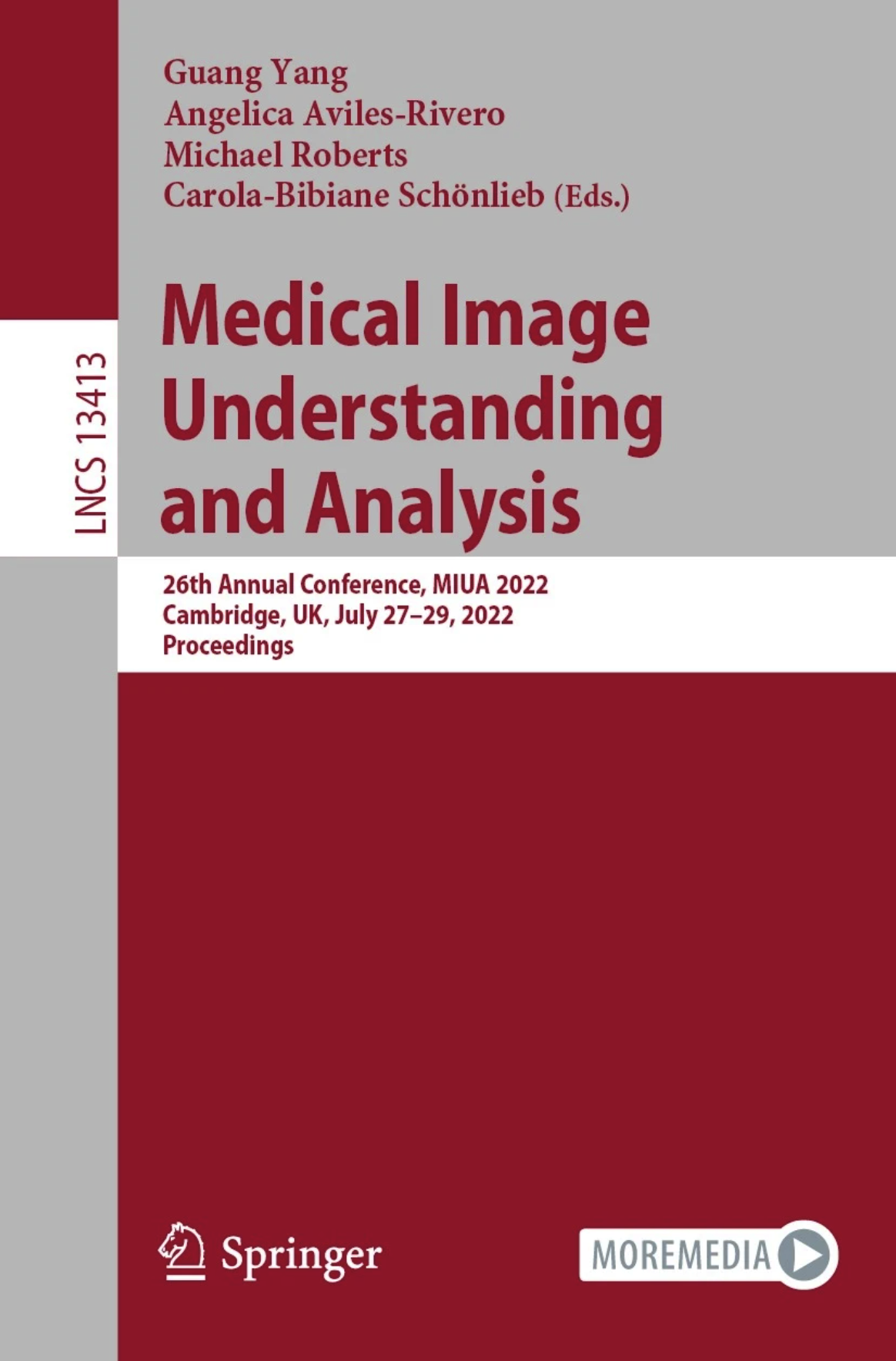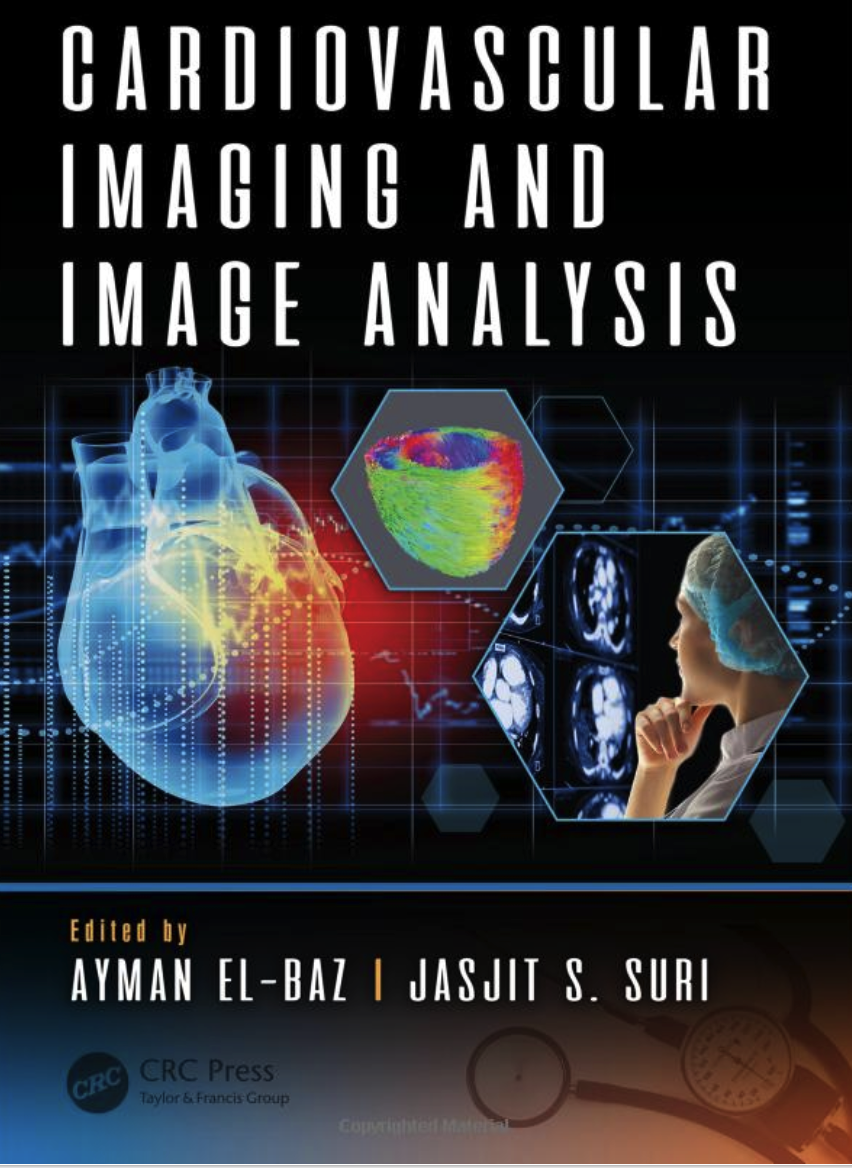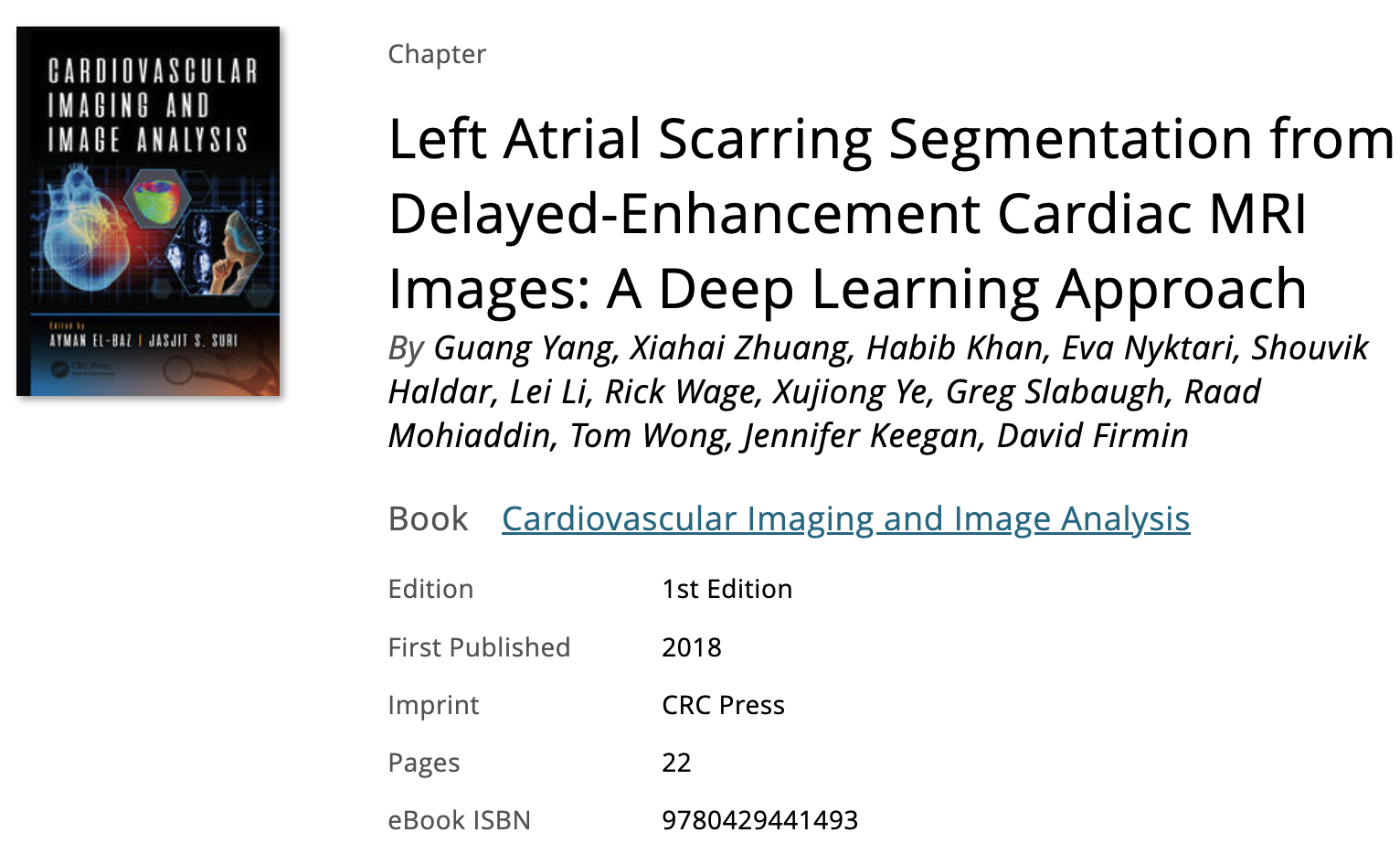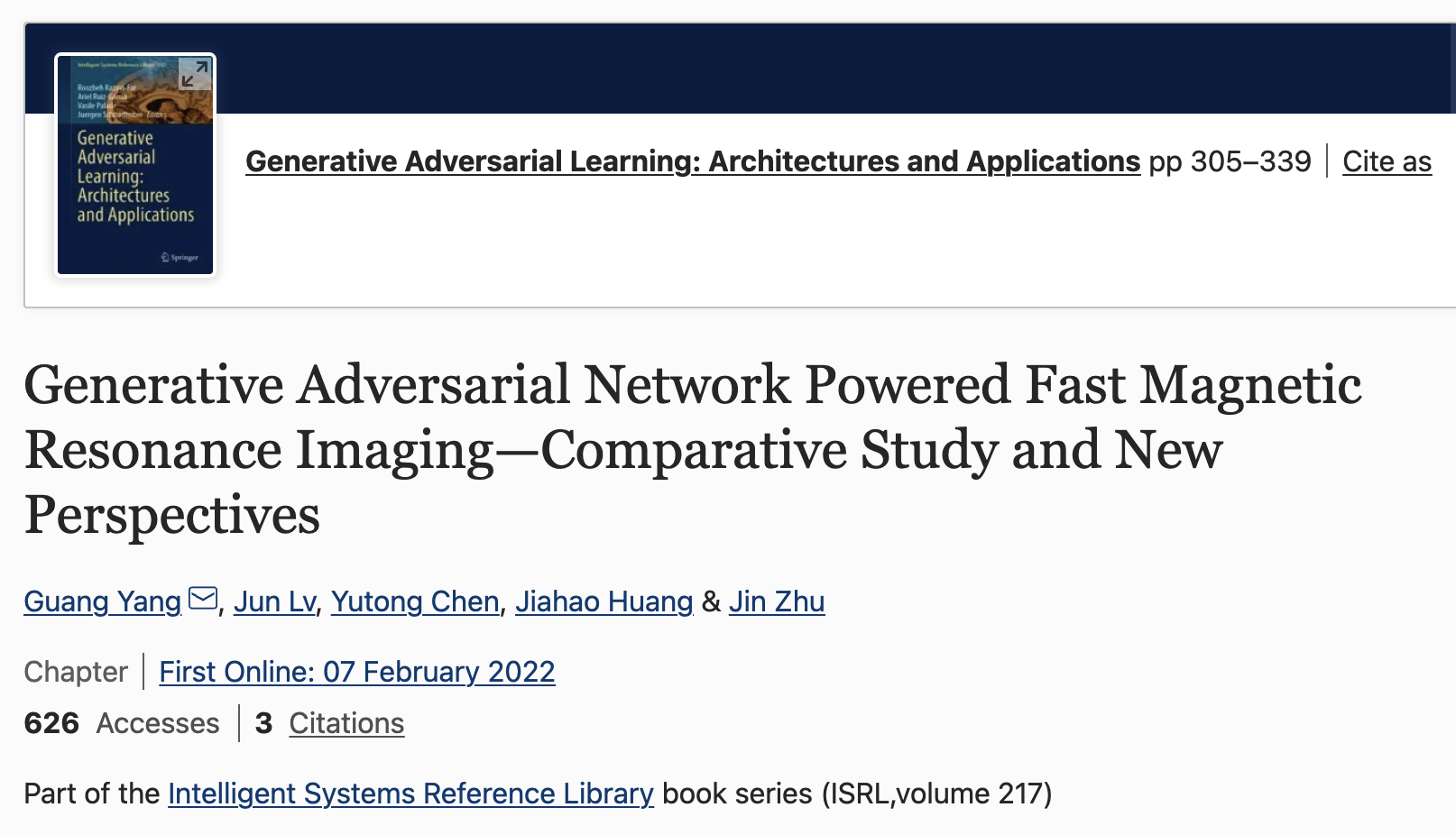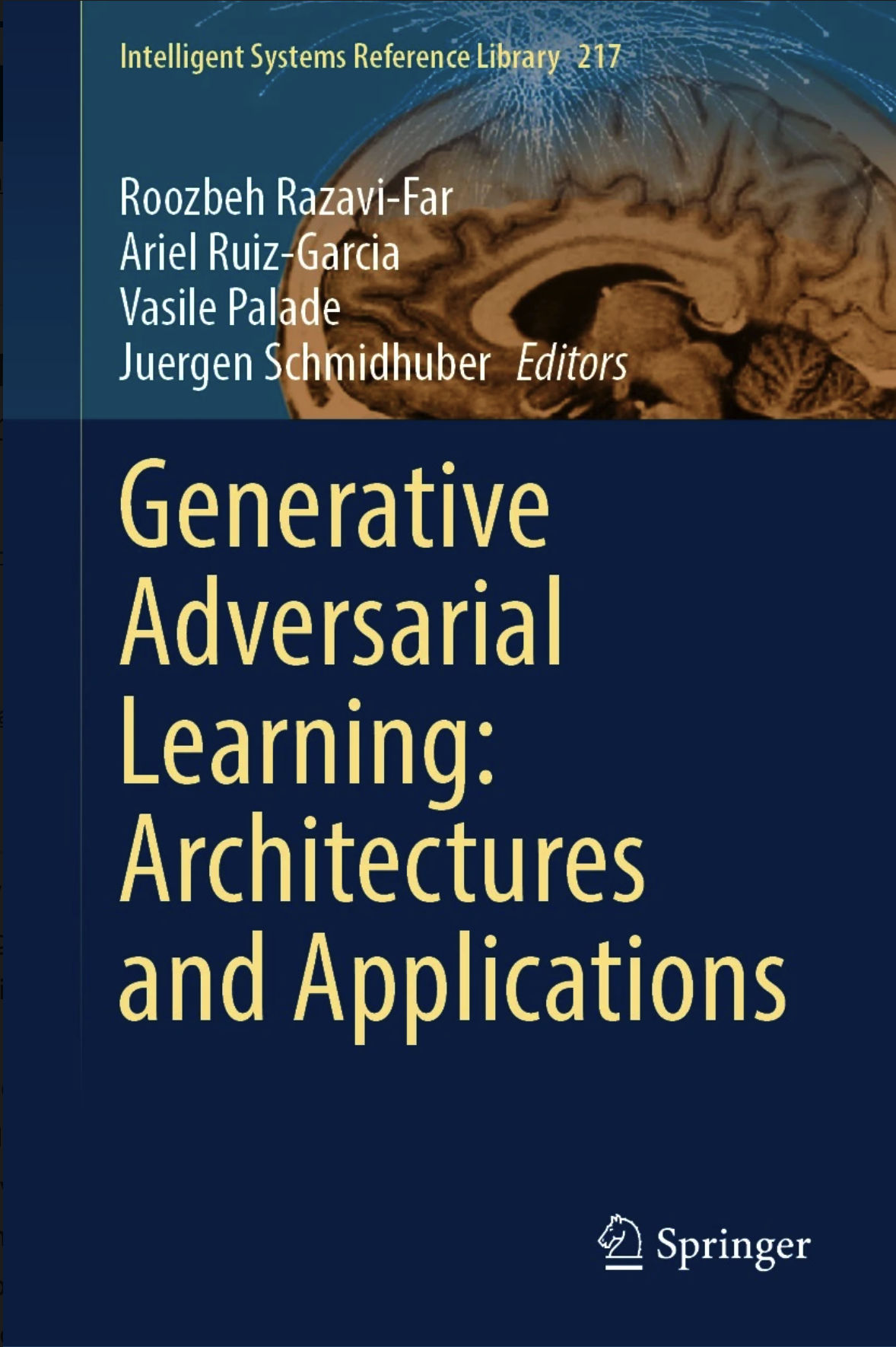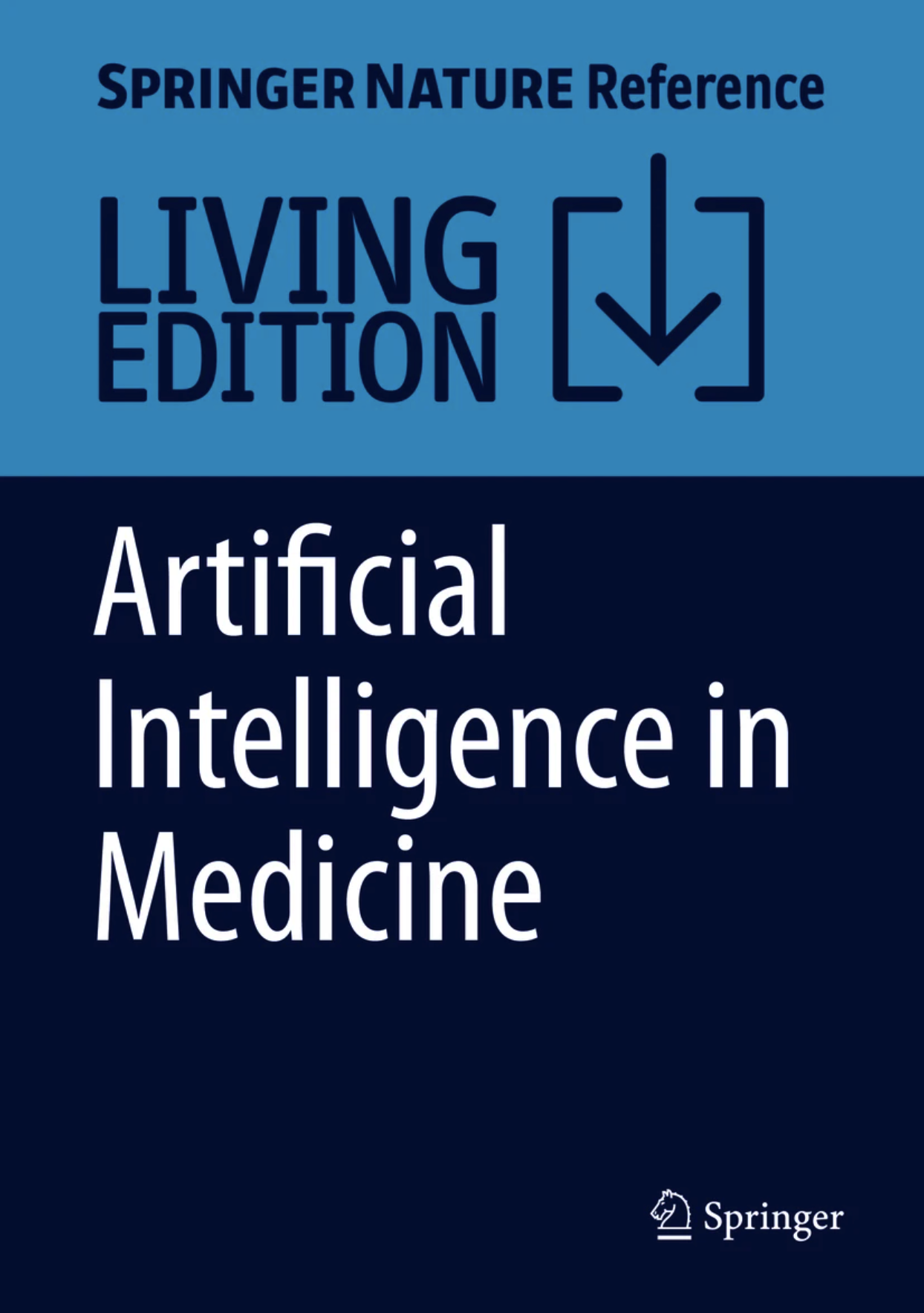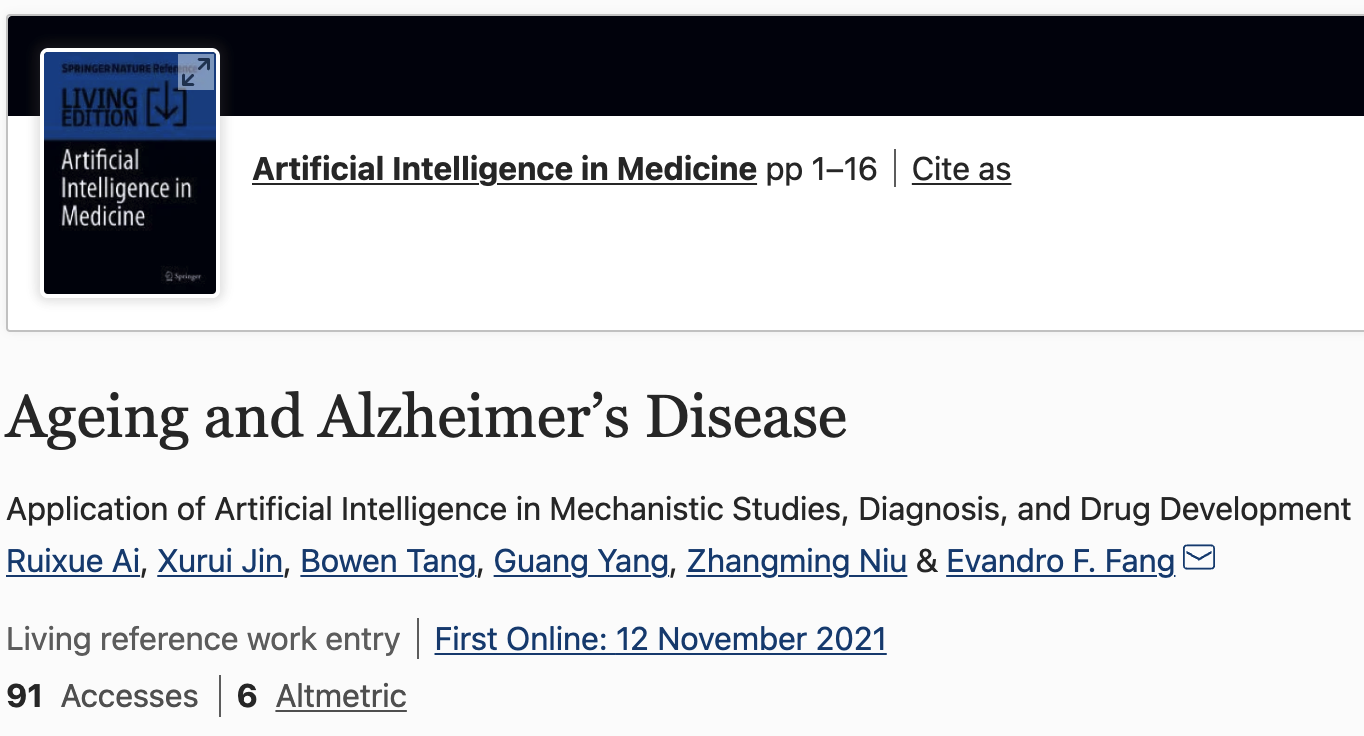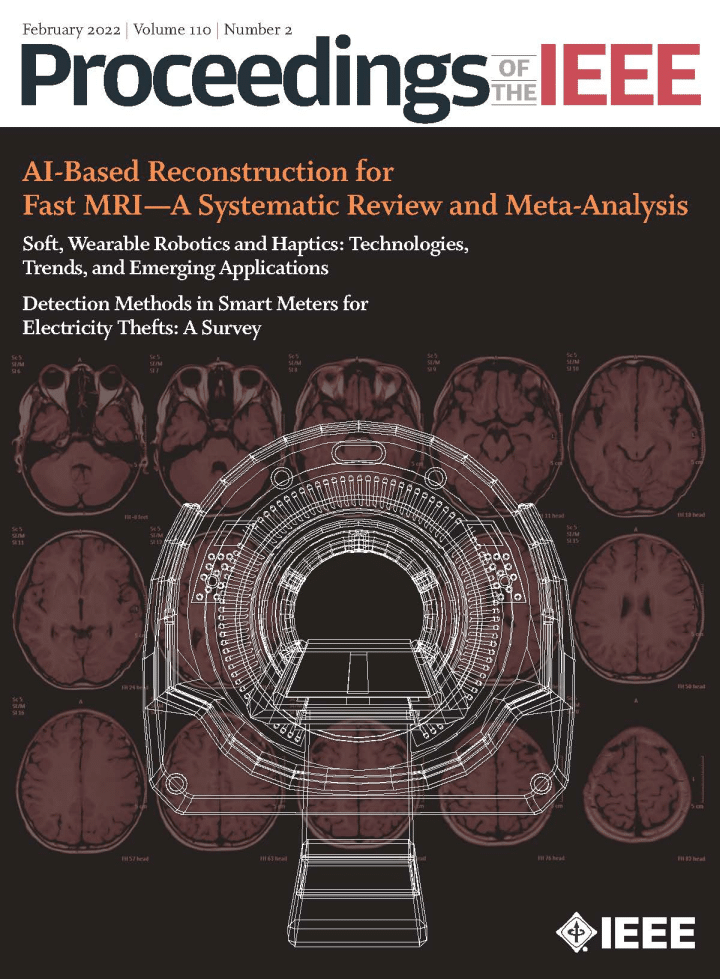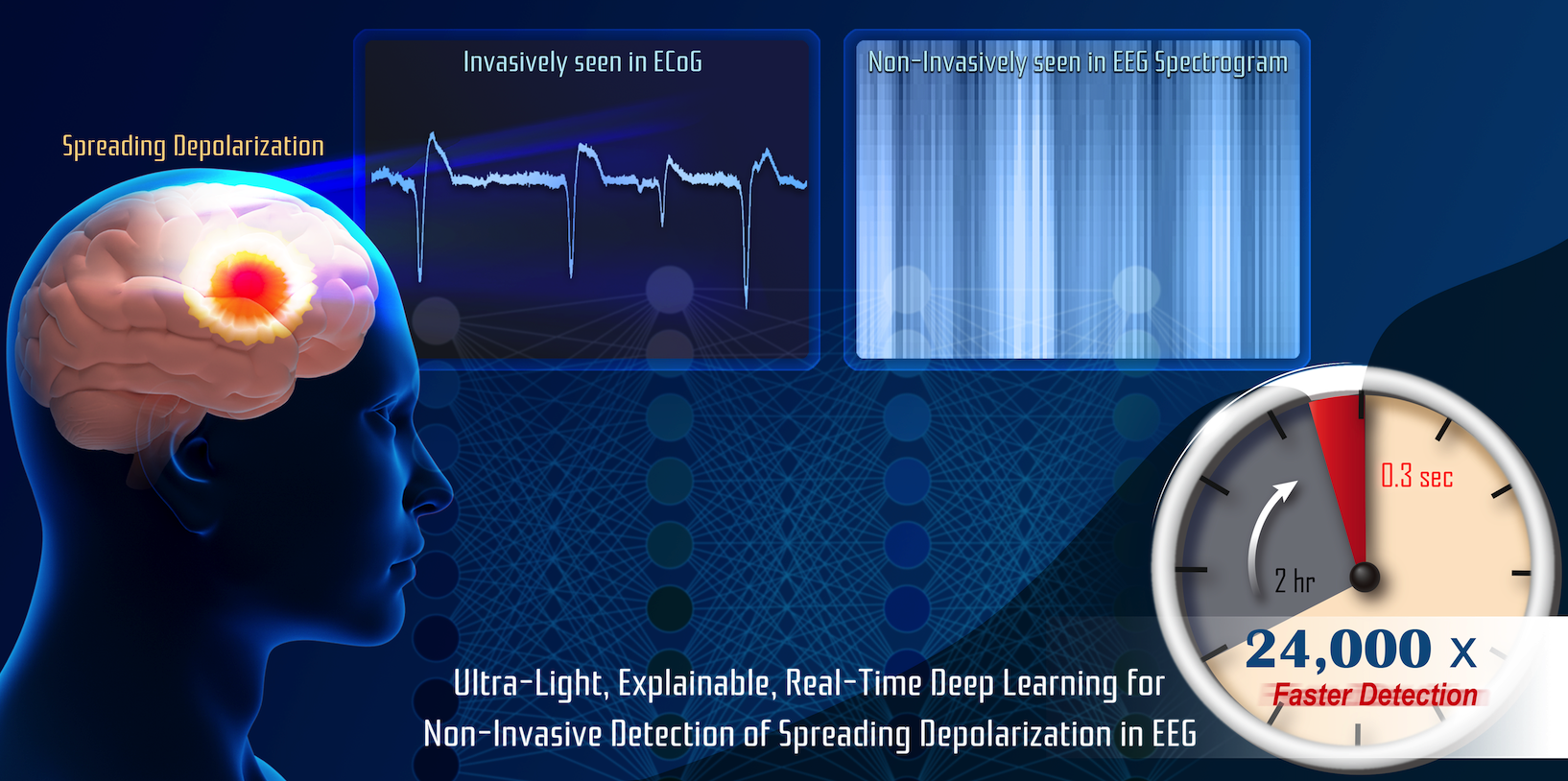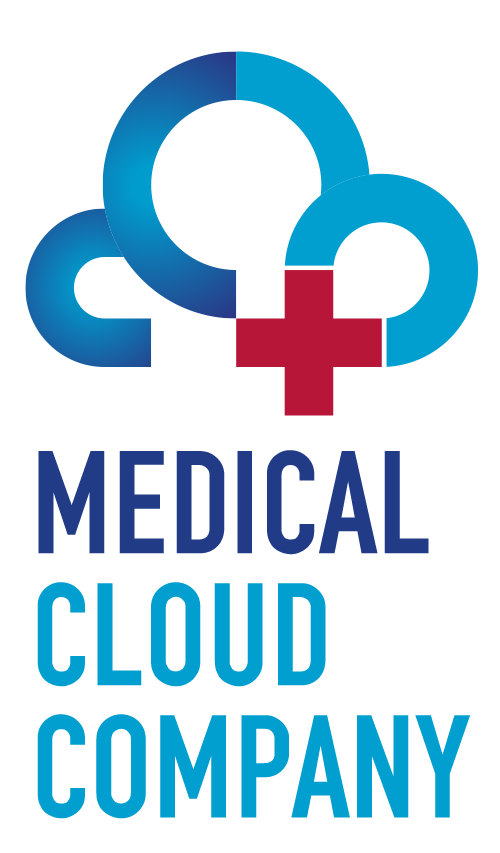Hiya!
The AYL (A Yang Lab), led by Dr. Guang Yang at Imperial College London, focuses on developing AI-driven techniques for imaging, biomedicine and biomedical data analysis with a strong emphasis on translational research. AYL’s work spans key areas such as AI-based data quality transfer, data harmonization, fast imaging, federated learning, and generative AI. These innovations are applied to tackle pre-clinical and clinical challenges in ageing, cardiovascular disease, lung disease, and oncology, with a particular focus on Smart Imaging, Big Data Analysis, AI in Drug Discovery, and Clinical Decision-Making. AYL is actively collaborating with academic and industrial partners to bridge the gap between cutting-edge AI technology and real-world healthcare solutions. AYL is situated at Imperial College White City Campus and has 1 PI, 7 PDRAs, 18 PhD students (under primary supervision by Dr. Guang Yang), and 10+ MRes/MSc students (Nov. 2025).
AYL operates as a collaborative community that prioritizes professional growth, personal development, inclusivity, and respect. The lab fosters an environment where all members are encouraged to take ownership of their research while maintaining a strong commitment to equality, diversity, and inclusion. Mental health and work-life balance are integral to the lab’s culture, with flexibility in working hours and support for mental well-being. The lab encourages open communication, constructive feedback, and mutual mentorship to promote learning and growth. Dr. Guang Yang emphasizes the importance of independent, self-motivated research while providing mentorship and career development support, including guidance on publications, conferences, and personal goals. The lab upholds a culture of kindness, integrity, and transparency, with a focus on collaborative work and a commitment to celebrating achievements together. Our detailed Values can be found here.
📢📝 Call for PhD students
I have many enquires about PhD admission and here are my criteria and a few suggestions. Please read before contacting me (see our Values as well).
Please note that applications for Fall 2025 admission are now closed. I am considering max. 2 new PhD students in fall 2026, and one can be our President’s PhD studentship awardee (see below).
🏆 I assume that you have some research experience, such as programming, reading and writing papers, and basic statistical skills.
💪 You should be self-motivated, and I am here as a resource for you.
☎️ Communication is crucial, and you will 'work with' me, not 'for' me.
Peculiar facts at my research lab:
🎠 To reach your PhD viva, I do not have a requirement for publications. This depends on your motivation and career plan. Having fewer publications makes my life easier.
⛵️ Please consider leaving my lab after 4 years. Typically, a PhD in the UK takes 3.5 years, and you are not obligated to stay after your PhD. I encourage change, and I am always eager to see new faces.
🏖 I value my personal life and privacy. I want people to know that I know what I'm doing, but I don't want them to know the specifics of what I'm doing.
💰💌 PhD studentships can be found below:
• President's PhD Scholarship Scheme (Highly motivated students please contact me, and one can start in fall 2026! 💯)
• Royal Commission 1851 Industrial Fellowships (Please contact me for details)
• China Scholarship Council (China)
• Imperial Marshall Scholarship (USA)
• Conicyt-Imperial Scholarship (Chile)
• High income Commonwealth PhD Scholarship (eligible countries only)
• Commonwealth PhD Scholarship (eligible countries only)
• Commonwealth Split-site Scholarship (eligible countries only)
• All Scholarship Schemes (scholarship search tool)
Find details about the PhD program in the Department of Bioengineering click here. For general information on tuition fees and the cost of living in London, refer to this link. Explore additional sources of PhD funding click here and here (Bioengineering funding). External scholarships are also available here. Before reaching out, ensure that you meet the prerequisites for application and entry established by Imperial College.
🎏 Postdoc fellowships can be found below; please share with me your brilliant ideas and I will support your application:
• Royal Commission 1851 Research Fellowships
• Imperial College Research Fellowships
• Eric and Wendy Schmidt AI in Science Postdoctoral Fellow
• Leverhulme Trust
• Marie Sklodowska-Curie Individual Fellowship
• British Council Women in STEM Fellowship (South Asia)
• HFSP Postdoctoral Fellowships
📢🎓 MRes Bioengineering (2025-2026 round) at Imperial College London is open closed now. Interested students can still refer to my projects, and most of them will be available in 2026-2027 round.
Apply here:
https://www.imperial.ac.uk/study/courses/postgraduate-taught/bioengineering-mres/
You can choose my projects:
https://www.imperial.ac.uk/bioengineering/study/postgraduate-research/mres-bioengineering/projects/
Application deadlines – Round 3 closes on Thursday 15 May 2025
You may also be interested in our new MSc Artificial Intelligence Applications and Innovation:
https://www.imperial.ac.uk/study/courses/postgraduate-taught/applications-innovation/
📢 I will be the General Chair of IEEE 23rd International Symposium on Biomedical Imaging (IEEE ISBI 2026):
https://biomedicalimaging.org/2026/
Date: April 8-11, 2026
Location: London, UK📢 IEEE Conference on Artificial Intelligence (IEEE CAI 2024):
https://ieeecai.org/2024/authors/
📜📝🖋 Call for Papers:Special issue call: “Special Issue on Large Language Models (LLMs) and Cross-Modal Generative AI” in the IEEE Transactions on Big Data.
Please contact Lead Guest Editor: Dr Guang Yang for potential submissions.
Submission deadline: 30 November 2023
https://www.computer.org/digital-library/journals/bd/cfp-llms-and-cross-modal-generative-aiSpecial issue call: “Federated Learning in Digital Healthcare: New Discoveries, Advances and Applications” in the Patterns journal (Cell Press).
Invited papers will have Article Processing Charges waiver. Please contact Lead Guest Editor: Dr Guang Yang for potential submissions.
Submission deadline: 30 April, 2023
https://www.cell.com/patterns/special-issues/call-for-papers/federated-learning-in-digital-healthcare
Frontiers in Cardiovascular Medicine (Impact Factor: 5.846)
Deadline for manuscript submissions: 02 May 2023
Generative Adversarial Networks in Cardiovascular Research
https://www.frontiersin.org/research-topics/45072/generative-adversarial-networks-in-cardiovascular-research
Frontiers in Physics (Impact Factor: 3.718)
Deadline for manuscript submissions: 15 June 2023
Physics-Informed Medical Data Analysis
https://www.frontiersin.org/research-topics/42798/physics-informed-medical-data-analysis
Sensors Journal (Impact Factor: 3.576)
Deadline for manuscript submissions: 31 July 2023
Computational Imaging, Sensing and Analysis for Biomedical Applications
https://www.mdpi.com/journal/sensors/special_issues/computational_imaging_sensing
Sensors Journal (Impact Factor: 3.576)
Deadline for manuscript submissions: 15 May 2022
Advanced Trustworthy and Privacy Preserved Image Processing and Pattern Recognition Methods for Biomedical and Clinical Applications
https://www.mdpi.com/journal/sensors/special_issues/Image_Pattern_Biomedical
Frontiers in Oncology (Impact Factor: 6.244)
Volume I Deadline for manuscript submissions: 16 December 2021; Volume II in preparation
Advances and New Insights into Cancer Characterization: When Novel Imaging Meets Quantitative Imaging Biomarkers
https://www.frontiersin.org/research-topics/23485/advances-and-new-insights-into-cancer-characterization-when-novel-imaging-meets-quantitative-imaging
Physics in Medicine & Biology (Impact Factor: 3.609)
Deadline for manuscript submissions: 30 November 2021
Focus on Machine Learning Models in Medical Imaging
https://iopscience.iop.org/journal/0031-9155/page/Focus%20on%20Machine%20Learning%20Models%20in%20Medical%20Imaging
Frontiers in Computational Neuroscience (Impact Factor: 2.380)
Deadline for manuscript submissions: 02 November 2021
Advances in Machine Learning Methods Facilitating Collaborative Image-based Decision Making for Neuroscience
https://www.frontiersin.org/research-topics/21345/advances-in-machine-learning-methods-facilitating-collaborative-image-based-decision-making-for-neur
News
"Our major obligation is not to mistake slogans for solutions." — Edward R. Murrow
The greatest joy of being an advisor?
— Guang Yang (@gyangMedIA) April 22, 2025
When my student shines, I just stand by and reflect the light ✨😎
Super proud of my student Fanwen Wang, Jiahao Huang, Yinzhe Wu and others for winning 2nd Place 🥈 in the #ISBI2025 Best Poster Award!
#BestPosterAward #StudentRocks pic.twitter.com/vZEkNnDRYQ
Big congrats to Dr Michael Tänzer, who has just defended his #PhD!#ArtificialIntelligence enabled highly efficient #DiffusionTensor #Cardiac #MagneticResonance
— Guang Yang (@gyangMedIA) April 7, 2025
Worked with @DanielRueckert, Sonia Nielles-Vallespin, and myself.https://t.co/YWc1KVoVoB pic.twitter.com/uBSb6aeZvj
#AIAutophagy: When AI feeds on its outputs, risks like #GenerativeAI model collapse & diversity loss emerge.
— Guang Yang (@gyangMedIA) February 13, 2025
🔍 Key Insights:
✅ Silent contamination of datasets
🕵️ Harder to spot synthetic vs real data
🔒 Policies lag in #transparency & #ethics
🔗 Read: https://t.co/CwoGQDCd4C pic.twitter.com/grY7DKkZM8
Recently turned down industry offers—big salaries💰—because nothing beats seeing my students succeed 🎓📚.
— Guang Yang (@gyangMedIA) October 19, 2024
Proud of them, and they’re already surpassing me at their stage 👏🌟.
Remember: You’re exactly where you need to be. No rush—be happy 😊, and you’ll hit that buzzer! 🎯🚀 pic.twitter.com/YSTqB4cTb7
🎉✨ Proud to announce my amazing #MEng and #MRes students have completed their #FinalProject! 🥳 From endless brainstorming to late-night coding, you've shown incredible dedication and creativity. 🌟 Onwards to new adventures and groundbreaking discoveries! 🚀 #ProudSupervisor pic.twitter.com/9IjZmdrtLE
— Guang Yang (@gyangMedIA) July 6, 2024
🤣 Real life #joke Alert!
— Guang Yang (@gyangMedIA) April 11, 2024
During my visit to the USA, I couldn't help but notice numerous #roadsigns saying "XING". Naturally, I thought they were paying homage to my #brilliant #PhD #student Xiaodan "Xing"!
End of my dry humour 😂
🔮 Dr Xing, your future is as bright as your intellect! Can't wait to witness the next chapter of your remarkable journey. Keep shining! 🌟🎓
— Guang Yang (@gyangMedIA) April 11, 2024
Please read her #publications here:https://t.co/5maI19skXN#PhD #SuccessStory #DrXing #GeniusAtWork #AcademicJourney #SyntheticData
Exploring the Potential of #DeepLearning in #Cardiac #DiffusionTensorImaging #Reconstruction https://t.co/BHeyXb6MfF pic.twitter.com/cXmHh17EcT
— Guang Yang (@gyangMedIA) April 9, 2024
— Guang Yang (@gyangMedIA) April 11, 2024
🥁 Today, after an intense 3-hour #viva, #Dr Yang Nan emerges triumphantly! 🎉👨🎓 As his proud #supervisor, witnessing his journey from start to success fills me with immense joy! 🚀📚 Massive thanks to our examiners and clinical co-supervisor for their invaluable support! 👏🙌
— Guang Yang (@gyangMedIA) April 5, 2024
And oh, guess who won the smiling contest? Yup, it's me! 😄💫 #SmileChampion #PhDProud #SuccessStory #ImperialCollege #Bioengineering #PhD #celebration pic.twitter.com/HA6ofMvI96
— Guang Yang (@gyangMedIA) April 5, 2024
AYangLab Introduction
Please join us for your next adventures!
26th UK Conference on Medical Image Understanding and Analysis
Please join us for MIUA’22 @Cambridge
Showcases
"The true sign of intelligence is not knowledge but imagination.” — Albert Einstein
Latest Research Posters
Impact of Generative AI
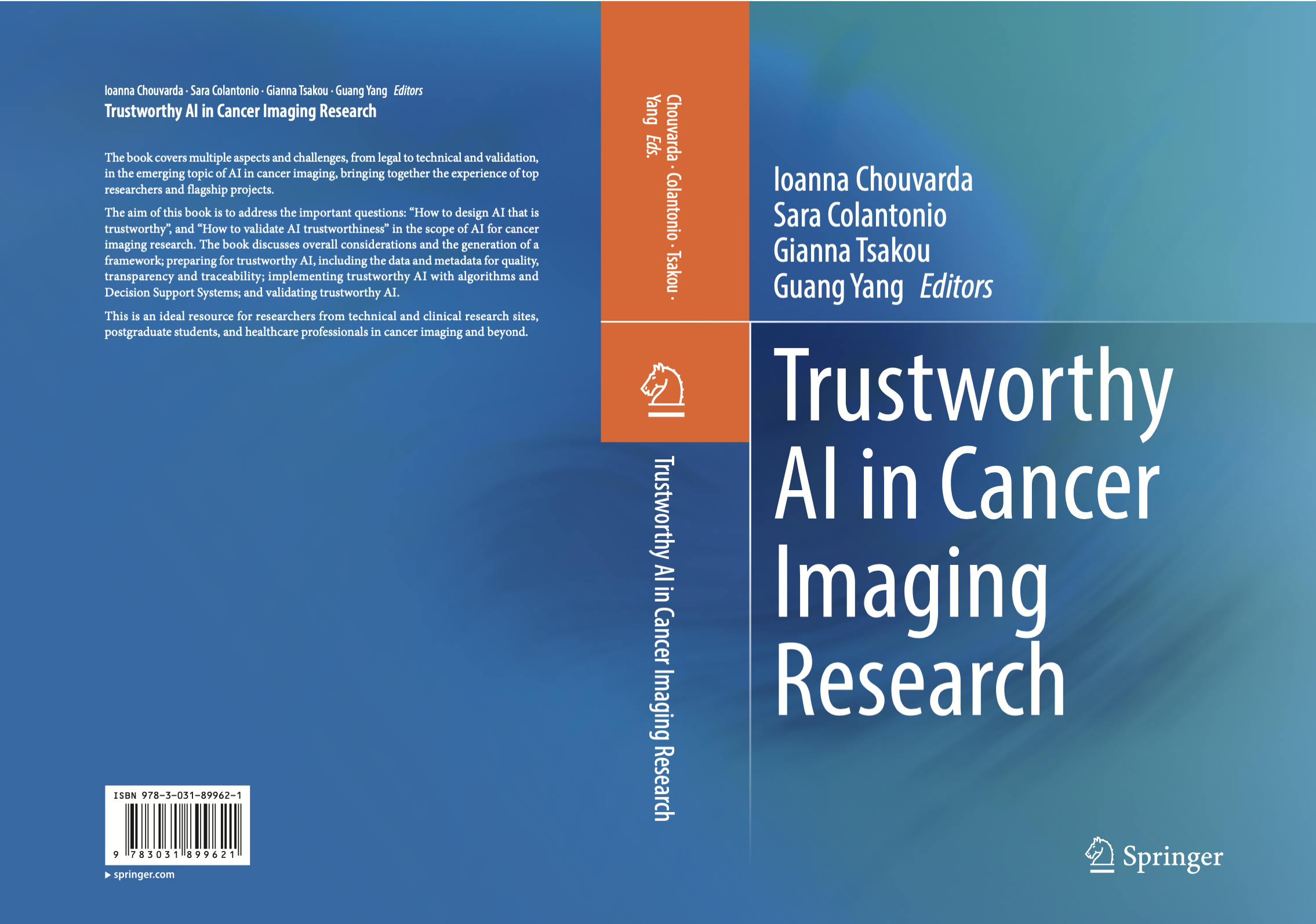
Available Now from Springer!
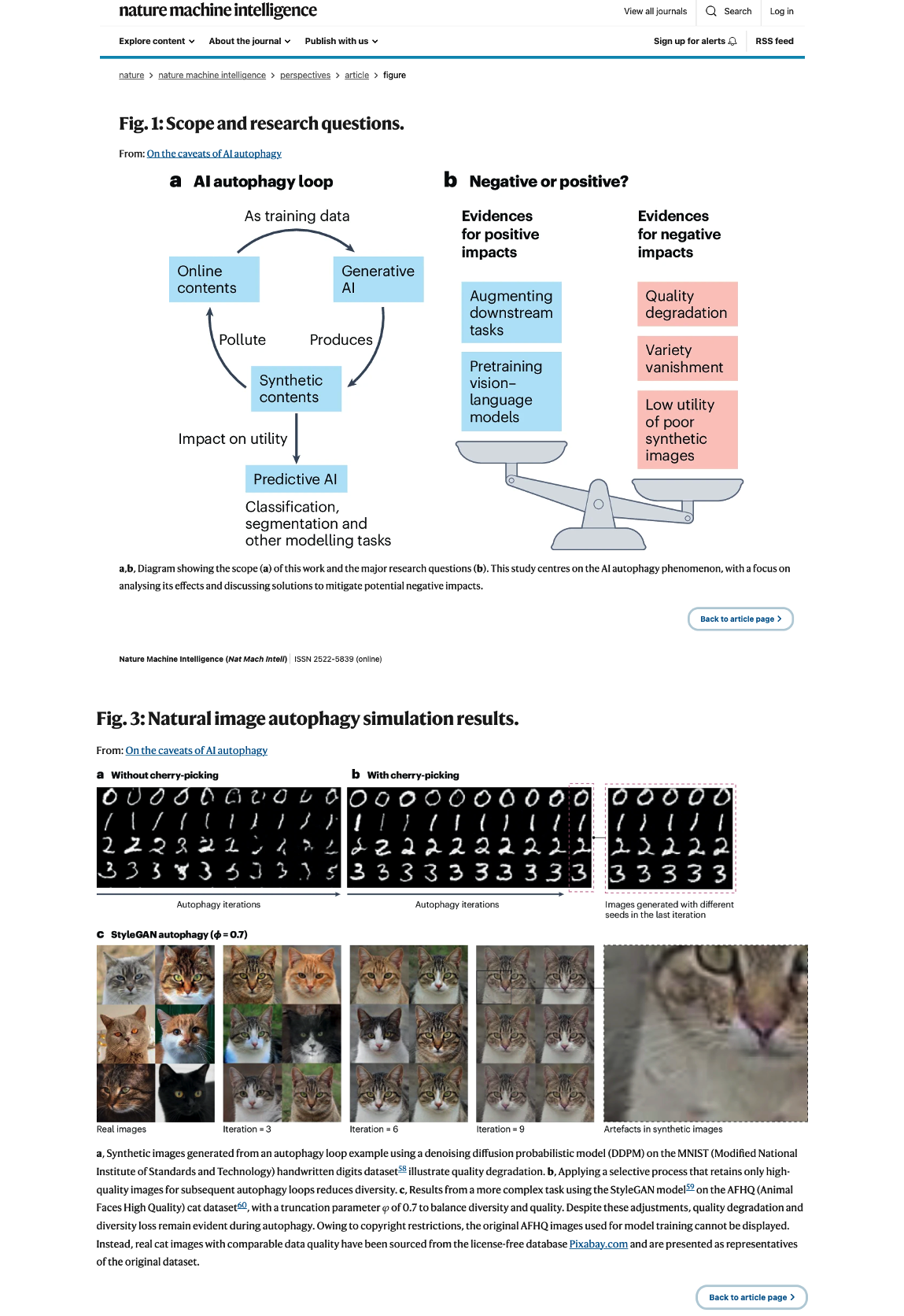
On the caveats of AI autophagy
When AI Eats Itself
Generative artificial intelligence (AI) technologies and large models are producing realistic outputs across various domains, such as images, text, speech and music. Creating these advanced generative models requires significant resources, particularly large and high-quality datasets. To minimize training expenses, many algorithm developers use data created by the models themselves as a cost-effective training solution. However, not all synthetic data effectively improve model performance, necessitating a strategic balance in the use of real versus synthetic data to optimize outcomes. Currently, the previously well-controlled integration of real and synthetic data is becoming uncontrollable. The widespread and unregulated dissemination of synthetic data online leads to the contamination of datasets traditionally compiled through web scraping, now mixed with unlabelled synthetic data. This trend, known as the AI autophagy phenomenon, suggests a future where generative AI systems may increasingly consume their own outputs without discernment, raising concerns about model performance, reliability and ethical implications. What will happen if generative AI continuously consumes itself without discernment? What measures can we take to mitigate the potential adverse effects? To address these research questions, this Perspective examines the existing literature, delving into the consequences of AI autophagy, analysing the associated risks and exploring strategies to mitigate its impact. Our aim is to provide a comprehensive perspective on this phenomenon advocating for a balanced approach that promotes the sustainable development of generative AI technologies in the era of large models.
More Info
Amelioration of Alzheimer’s Disease Pathology by Mitophagy Inducers Identified via Machine Learning and a Cross-Species Workflow
Machine Learning Identifies Mitophagy Inducers
Scientists (Dr Guang Yang and Zhangming Niu) at Imperial College London, UK and MindRank AI in Hangzhou, China, used predictive algorithms informed by machine learning to identify molecules capable of promoting the degradation of damaged mitochondria, a process known as mitophagy. Their virtual screen yielded a list of 18 compounds. Working with gerontologist Prof Evandro Fang at the University of Oslo and pharmacologist Prof Jia-Hong Lu at the University of Macau, the group then used human cells, worms and mice to winnow this list down to two drug candidates, both of which target a protein called PINK1 — an important mediator of mitochondrial quality control. Late last year, the researchers showed how the drugs helped to improve memory in worm and mouse models of Alzheimer’s disease.
More Info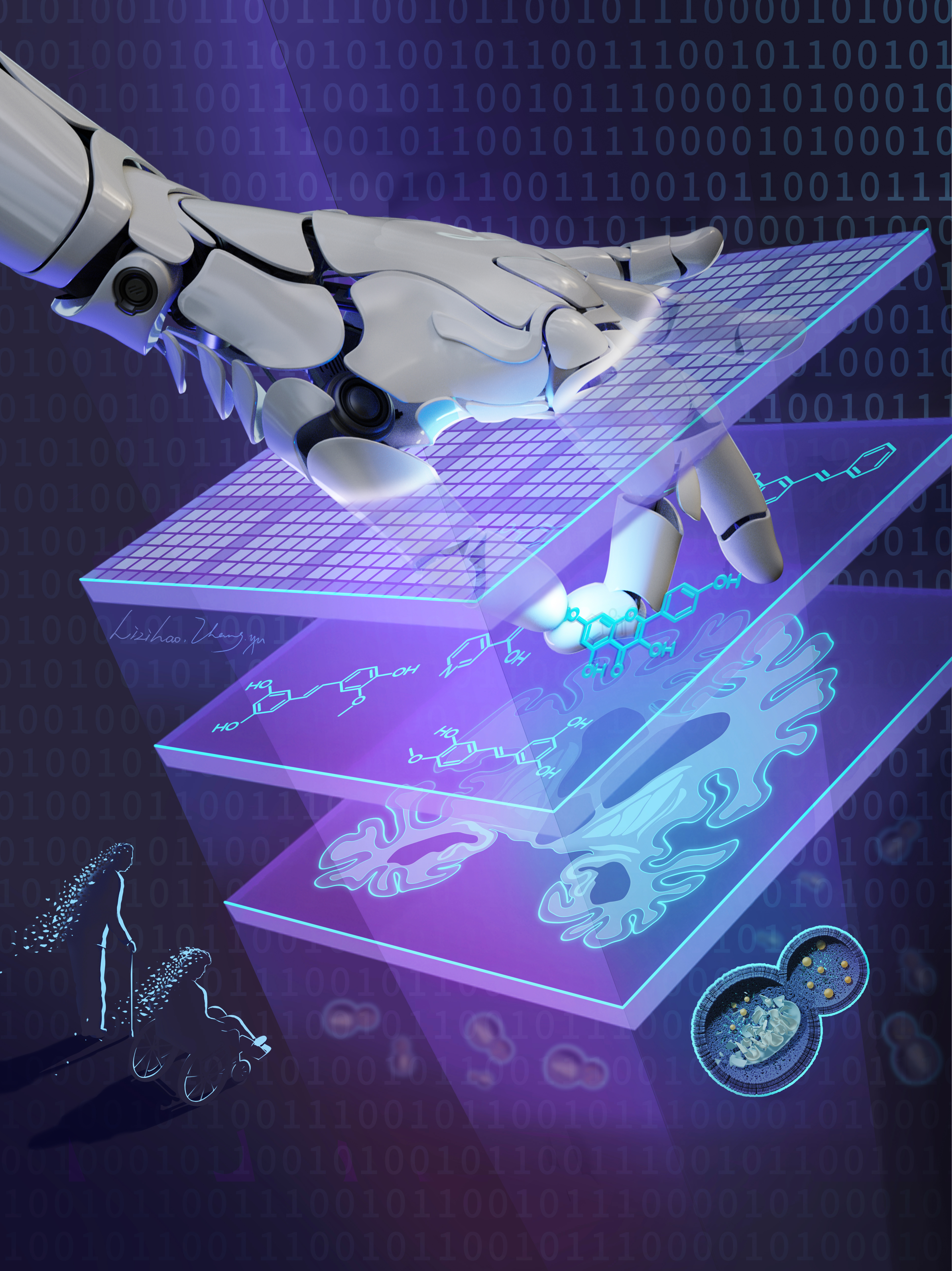
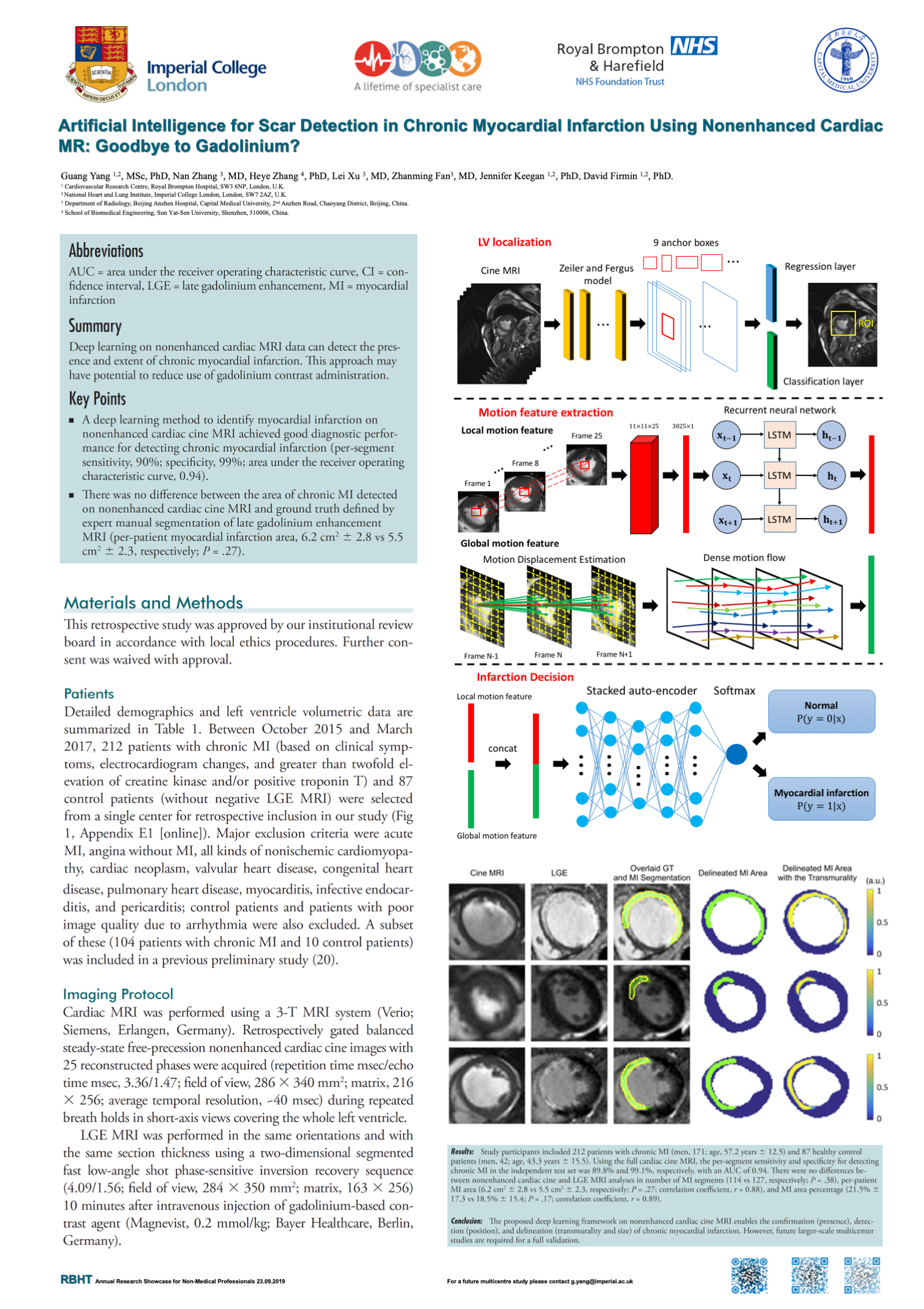
Deep Learning for Detection of Myocardial Scar Tissue
Goodbye to Gadolinium?
"This study is another important step toward gadolinium-based contrast agent–free cardiac imaging and complements other native techniques such as T1- and T1-rho mapping, feature tracking, and the recently described, highly interesting approach by Baessler et al who studied the ability of texture analysis or radiomics to detect the presence and extent of left ventricle myocardial scar tissue from a single end-diastolic cine imaging frame. It is likely that a combination of both methods—deep learning analysis of cardiac motion as described in the present study as well as analysis of subtle differences in left ventricle myocardial texture—can lead to even better results on a patient level. The authors are also to be commended for making their source code freely available for other investigators.” — by Prof. Tim Leiner
More Info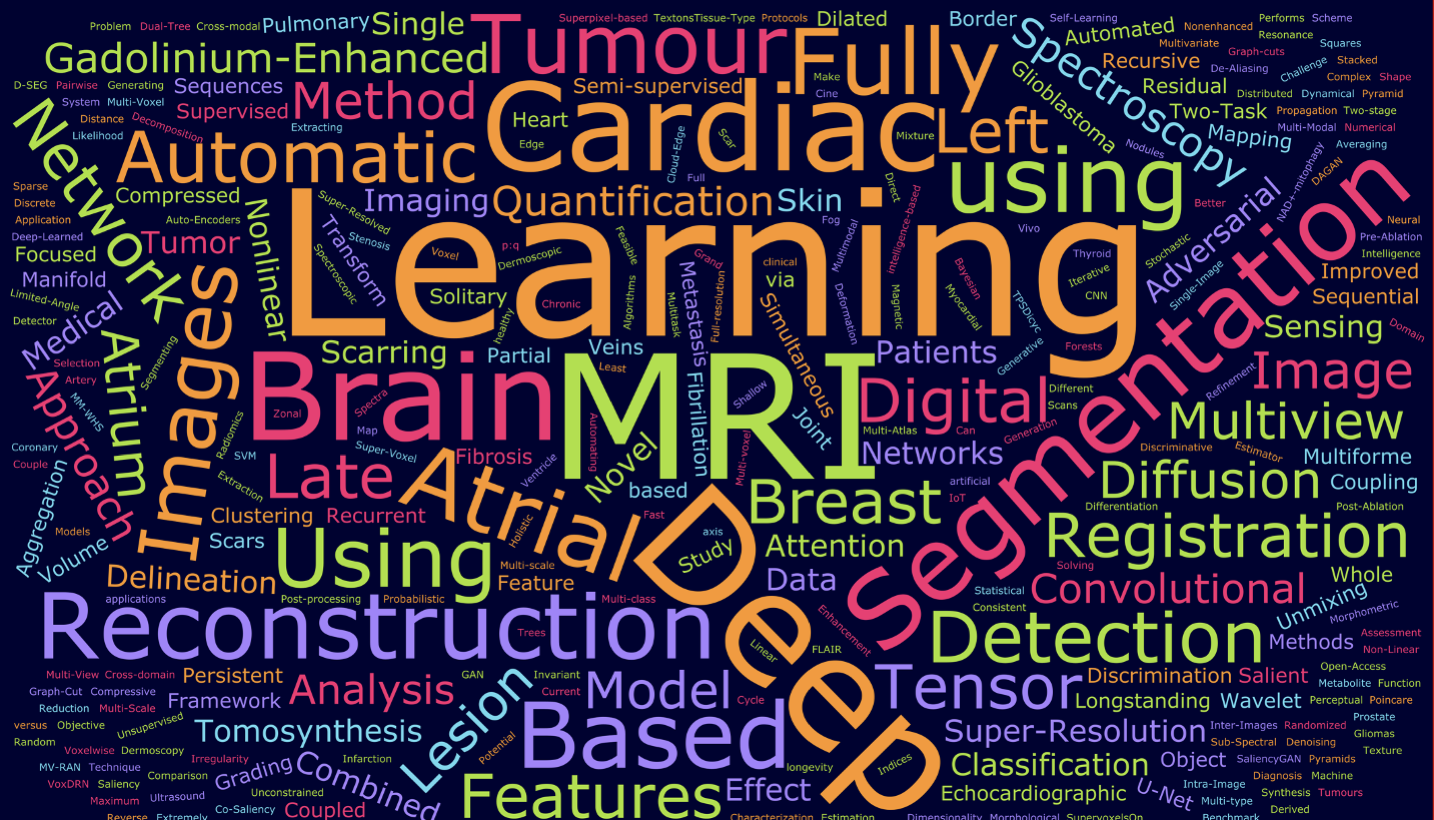
Research Keywords
Learning is the key ...
I am always looking for collaborators, good students and brilliant ideas!
More InfoTeam
"Coming together is a beginning, staying together is progress, and working together is a success." — Henry Ford

Guang Yang 🇨🇳 ⚦
⏣ Ph.D, MS.c,
IEEE Senior Member,
SPIE Life Member,
BMVC & MICCAI Member
⎈ Head of the AYL
⎈ Associate Professor (Senior Lecturer), Bioengineering Department & Imperial-X, Imperial College London
⎈ UKRI Future Leaders Fellow
⎈ Editorial Board Member and Associate Editor of:
npj Digital Medicine;
Medical Image Analysis;
IEEE Transactions on Medical Imaging;
IEEE Transactions on Big Data;
IEEE Transactions on Emerging Topics in Computational Intelligence;
International Journal of Imaging Systems and Technology;
Computerized Medical Imaging and Graphics;
IEEE Transactions on Cybernetics;
Neurocomputing.
⌘
Fast MRI
Deep Learning
Machine Learning
Federated Learning
Pattern Recognition
Medical Image Analysis
Explainable and Trustworthy AI
Current PDRAs

Yingying Fang 🇨🇳 ♀︎
⎈ Postdoc Research Associate,
Bioengineering Department, Imperial College London
2021-now
⌘
Inverse Problems
Multifactorial Analysis
Diagnostic and Prognostic Models

Sheng Zhang 🇨🇳 ⚦
⎈ MSCA UKRI Research Fellow,
Bioengineering Department, Imperial College London
2022-now
⌘
Segmentation
Explainable AI
Diagnostic and Prognostic Models

Yang Nan 🇨🇳 ⚦
⎈ Postdoc Research Associate,
Bioengineering Department, Imperial College London
2024-now
⌘
Foundation Models
Data Harmonisation
Unsupervised Segmentation

Xiaodan Xing 🇨🇳 ♀︎
⎈ Postdoc Research Associate (Part-time),
Bioengineering Department, Imperial College London
2024-now
⌘
Data Synthesis
Privacy-preserved Learning

Liutao Yang 🇨🇳 ⚦
⎈ Postdoc Research Associate,
Bioengineering Department, Imperial College London
2024-now
⌘
Low Dose CT/PET Reconstruction

Zi Wang 🇨🇳 ⚦
⎈ Postdoc Research Associate,
Bioengineering Department, Imperial College London
2024-now
⌘
Quantitative MRI

Chunling Tang 🇨🇳 ⚦
⎈ Research Fellow,
Bioengineering Department, Imperial College London
2025-now
⌘
Cell Imaging
Organoid
Current PhD Students (Primary Supervision)

Ming Li 🇨🇳 ⚦
⎈ PhD Student,
Bioengineering Department, Imperial College London
⎈ Research Assistant,
Bioengineering Department, Imperial College London
2021-now
⌘
Federated Learning
Explainable and Trustyworthy AI

Yinzhe Wu 🇨🇳 ⚦
⎈ PhD Student,
Bioengineering Department, Imperial College London
Imperial President’s Scholarship Winner
2022-now
⌘
DT-CMR
Tractography
Super-resolution

Fanwen Wang 🇨🇳 ♀︎
⎈ PhD Student,
Bioengineering Department, Imperial College London
⎈ Research Assistant,
Bioengineering Department, Imperial College London
2022-now
⌘
Radiomics
Registration

Shiyi Wang 🇨🇳 ♀︎
⎈ PhD Student,
Bioengineering Department, Imperial College London
2022-now
⌘
Active Learning
Explainable and Trustyworthy AI
Airway and Vessel Segmentation

Zhangming Niu 🇸🇪 ⚦
⎈ PhD Student,
National Heart and Lung Institute, Imperial College London
2022-now (Part-time)
⌘
Prognositic Models
AI in Drug Discovery

Chenyu Zhang 🇨🇳 ♀︎
⎈ PhD Student,
Bioengineering Department, Imperial College London
2024-now
⌘
EEG
Generative AI

Zhenxuan Zhang 🇨🇳 ⚦
⎈ PhD Student,
Bioengineering Department, Imperial College London
2024-now
⌘
Fast MRI

Le Jiang 🇨🇳 ⚦
⎈ PhD Student,
Bioengineering Department, Imperial College London
2024-now
⌘
Federated Learning

Jacob Nicholas Ross Walker 🇨🇭 ⚦
⎈ PhD Student,
AI4Health CDT, Computing Department, Imperial College London
2024-now
⌘
Lung Fibrosis Diagnosis and Prognosis

Zerui Li 🇨🇳 ⚦
⎈ PhD Student,
Bioengineering Department, Imperial College London
2024-now
⌘
Bioinformatics
AI in Drug Discovery

Xianglu Xiao 🇨🇳 ⚦
⎈ PhD Student,
Bioengineering Department, Imperial College London
2024-now
⌘
AI in Drug Discovery
AI in Science

Shenglong Deng 🇨🇳 ♀︎
⎈ PhD Student,
Bioengineering Department, Imperial College London
⎈ Research Assistant,
Bioengineering Department, Imperial College London
2025-now
⌘
Dynamic Resilience
AI in Drug Discovery

Sicheng Wang 🇨🇳 ⚦
⎈ PhD Student,
Bioengineering Department, Imperial College London
2025-now
⌘
AIVC
Agentic AI
Generative AI
Foundation Models

Peiyuan Jing 🇨🇳 ⚦
⎈ PhD Student,
Bioengineering Department, Imperial College London
2025-now
⌘
Report Generation
PET Imaging and Analysis

Yitong Luo 🇨🇳 ⚦
⎈ PhD Student,
Bioengineering Department, Imperial College London
2025-now
⌘
AI in Food Engineering

Liwei Hu 🇨🇳 ⚦
⎈ PhD Student,
Bioengineering Department, Imperial College London
2025-now
⌘
Multimodal Cardiac Data and Imaging

Irina Yishuo Zhang 🇨🇳 ♀︎
⎈ PhD Student,
Bioengineering Department, Imperial College London
2025-now
⌘
Multiomics
Cell Imaging
AI in Drug Discovery

Ania Balcer 🇵🇱 ♀︎
⎈ PhD Student,
AI4Health CDT, Computing Department, Imperial College London
2025-now
⌘
AI in Vaccine Design
Current PhD Students (Co-supervision/Visiting)

Ke Wen 🇨🇳 ♀︎
⎈ PhD Student,
KCL-Imperial College Smart Medical Imaging CDT,
National Heart and Lung Institute, Imperial College London
2021-now
⌘
MRI Reconstruction
Sequence Programming

Yaqing Luo 🇨🇳 ♀︎
⎈ PhD Student,
KCL-Imperial College Smart Medical Imaging CDT,
National Heart and Lung Institute, Imperial College London
2021-now
⌘
MRI Reconstruction
Spiral Diffusion Tensor Cardiac MRI

Kamrul Hasan 🇧🇩 ⚦
⎈ PhD Student,
Bioengineering Department, Imperial College London
2022-now
⌘
PINN
Segmentation
Fetal Heart Data Analysis

Roberto Sesia 🇬🇧 ⚦
⎈ PhD Student,
National Heart and Lung Institute, Imperial College London
2022-now
⌘
Diagnostic Models
Inforamtion Fusion

Yihao Luo 🇨🇳 ⚦
⎈ PhD Student,
Bioengineering Department, Imperial College London
2023-now
⌘
Graphics
Biomechanical Modelling

Matouš Elphick 🇬🇧 ⚦
⎈ PhD Student,
Francis Crick Institute & Imperial College London
The Institute of Cancer Research
2024-now
⌘
Bioimage Analysis
Computational Pathology

Lucas Seiji Kikuchi Iijima 🇧🇷 ⚦
⎈ PhD Student,
Department of Bioengineering, Imperial College London
2024-now
⌘
Deep Learning in Biomechanics

Xiao Ma 🇨🇳 ⚦
⎈ Visiting PhD Student,
Department of Bioengineering, Imperial College London
2025-now
⌘
Generative AI
Medical Image Segmentation

Tao Wang 🇨🇳 ⚦
⎈ Visiting PhD Student,
Department of Bioengineering, Imperial College London
2025-now
⌘
Medical Image Segmentation

Ruicheng Yuan 🇨🇳 ⚦
⎈ Visiting PhD Student,
Department of Bioengineering, Imperial College London
2025-now
⌘
Digital Pathology

Fadong Shi 🇨🇳 ⚦
⎈ PhD Student,
Department of Bioengineering, Imperial College London
2025-now
⌘
Cell Imaging
Current Masters Students

Weiye Bao 🇨🇳 ⚦
⎈ MRes Student,
Bioengineering Department, Imperial College London
2025-now
⌘
Foundation Models

Haijie Xu 🇨🇳 ⚦
⎈ MRes Student,
Bioengineering Department, Imperial College London
2025-now
⌘
Cell Imaging

Yijia Wang 🇨🇳 ♀︎
⎈ MRes Student,
Bioengineering Department, Imperial College London
2025-now
⌘
Multimodal Data

Jingru Guo 🇨🇳 ♀︎
⎈ MSc Student,
Computing Department, Imperial College London
2025-now
⌘
Cell Imaging
Alumni

Huichi Zhou 🇨🇳 ⚦
⎈ MRes Student,
Bioengineering Department, Imperial College London
2024-2025
⌘
Foundation Models

Peiyuan Jing 🇨🇳 ⚦
⎈ MRes Student,
Bioengineering Department, Imperial College London
2024-2025
⌘
LF-HF MRI
Report Generation

Haosen Zhang 🇨🇳 ⚦
⎈ MRes Student,
Bioengineering Department, Imperial College London
2024-2025
⌘
Fast MRI
Segmentation

KinHei Lee 🇨🇳 ⚦
⎈ MRes Student,
Bioengineering Department, Imperial College London
2024-2025
⌘
Report Generation

Junxian Du 🇨🇳 ⚦
⎈ MRes Student,
Bioengineering Department, Imperial College London
2024-2025
⌘
Cell Imaging

Hamidreza Sadeghsalehi 🇮🇷 ⚦
⎈ MRes Student,
Bioengineering Department, Imperial College London
2024-2025
⌘
Medical Image Segmentation

Ula Briski 🇸🇮♀︎
⎈ MRes Student,
Bioengineering Department, Imperial College London
2024-2025
⌘
Generative AI

Congren Dai 🇨🇳 ⚦
⎈ MRes Student,
Computing Department, Imperial College London
2024-2025
⌘
Online Continual Learning

Yitong Luo 🇨🇳 ⚦
⎈ MSc Student,
Computing Department, Imperial College London
2024-2025
⌘
Cell Imaging

Hongjie Wu 🇨🇳 ♀︎
⎈ MSc Student,
Computing Department, Imperial College London
2024-2025
⌘
Cell Imaging

Chris Shi 🇨🇳 ⚦
⎈ MSc Student,
Bioengineering Department, Imperial College London
2024-2025
⌘
Active Learning

Yue Yang 🇨🇳 ♀︎
⎈ MSc Student,
Department of Surgery and Cancer, Imperial College London
2024-2025
⌘
Cell Imaging

Michael Tanzer 🇮🇹 ⚦
⎈ PhD Student,
AI4Health CDT,
Computing Department, Imperial College London
Supervised with Daniel Rueckert and Sonia Nielles-Vallespin
2020-2025
⌘
Fast MRI
MRI Reconstruction
Diffusion Tensor Cardiac MRI
Now PDRA at NHLI

Jiahao Huang 🇨🇳 ⚦
⎈ PhD Student,
Bioengineering Department, Imperial College London
⎈ Research Assistant,
Bioengineering Department, Imperial College London
2021-2025
⌘
Fast MRI
MRI Reconstruction
Generative Adversarial Networks

Xiaodan Xing 🇨🇳 ♀︎
⎈ PhD Student,
Bioengineering Department, Imperial College London
⎈ Research Assistant,
Bioengineering Department, Imperial College London
2021-2024
⌘
Data Synthesis
Privacy-preserved Learning
Now AI/ML Engineer at GSK

Caiwen Jiang 🇨🇳 ⚦
⎈ Visiting PhD Student,
Department of Bioengineering, Imperial College London
2023-2024
⌘
XAI
Segmentation
Federated Learning

Federico Felder 🇦🇷 ⚦
⎈ Clinical Fellow,
National Heart and Lung Institute, Imperial College London
2021-2024
⌘
Lung Fibrosis
COVID-19
Radiology

Jun-Jie Hu 🇨🇳 ⚦
⎈ Postdoc Research Associate,
National Heart and Lung Institute, Imperial College London
2023-2024
⌘
Federated Learning
Quantum Computing
Multifactorial Analysis
Now research scientist at Shanghai Academy of AI for Science

Zihao Jin 🇨🇳 ⚦
⎈ MRes Student,
Department of Metabolism, Digestion and Reproduction,
Imperial College London
2023-2024
⌘
Prognostic Models

Yijian Gao 🇨🇳 ⚦
⎈ MRes Student,
Department of Computing,
Imperial College London
2023-2024
⌘
Clinical Report Synthesis

Junzhi Ning 🇨🇳 ⚦
⎈ MRes Student,
Department of Computing,
Imperial College London
2023-2024
⌘
Super-resolution

Gavin (Zhiling) Yue 🇨🇳 ⚦
⎈ MRes Student,
Department of Surgery and Cancer,
Imperial College London
2023-2024
⌘
Explainable AI Models

Jey Tse Loh 🇲🇾 ♀︎
⎈ MEng Student,
Department of Bioengineering,
Imperial College London
2023-2024
⌘
Synthetic Models

Ryan K L Ang 🇸🇬 ⚦
⎈ MEng Student,
Department of Bioengineering,
Imperial College London
2023-2024
⌘
Quantum Computing

Kamrul Eshak 🇬🇧 ⚦
⎈ MEng Student,
Department of Bioengineering,
Imperial College London
2023-2024
⌘
Segmentation

Siofra Murdoch 🇮🇪 ♀︎
⎈ MSc Student,
Department of Bioengineering,
Imperial College London
2023-2024
⌘
Synthetic Models

Qian Tong Lim 🇲🇾 ♀︎
⎈ MSc Student,
Department of Bioengineering,
Imperial College London
2023-2024
⌘
Super-resolution

Zifan Zeng 🇨🇳 ♀︎
⎈ MSc Student,
Department of Bioengineering,
Imperial College London
2023-2024
⌘
Super-resolution

Haotian Qi 🇨🇳 ⚦
⎈ UROP Student,
Department of Computing,
Imperial College London
2023-2024
⌘
Myocardium Infarction Segmentation

Lichao Wang 🇨🇳 ⚦
⎈ MRes Student,
Department of Computing,
Imperial College London
2022-2023
⌘
Myocardium Infarction Segmentation

Caiwen Xu 🇨🇳 ♀︎
⎈ MRes Student,
Department of Computing,
Imperial College London
2022-2023
⌘
COVID CT Segmentation

Danting Zhang 🇨🇳 ♀︎
⎈ MRes Student,
Department of Computing,
Imperial College London
2022-2023
⌘
Histology Data Analysis

Michael Yeung 🇬🇧 ⚦
⎈ MRes Student,
Department of Computing,
Imperial College London
2022-2023
⌘
Instance Segmentation

Zeyu Tang 🇨🇳 ⚦
⎈ UROP/MEng Student,
Bioengineering Department &
National Heart and Lung Institute, Imperial College London
2021-2023
⌘
Vecocity Mapping MRI
Cardiac MRI Segmentation
Now a PhD student at Cornell University

April Wu 🇨🇳 ♀︎
⎈ UROP/MEng Student,
Bioengineering Department &
National Heart and Lung Institute, Imperial College London
2021-2023
⌘
Vecocity Mapping MRI
Cardiac MRI Segmentation

Hao Li 🇬🇧 ⚦
⎈ UROP Student,
Bioengineering Department &
National Heart and Lung Institute, Imperial College London
2021-2023
⌘
Vecocity Mapping MRI
Cardiac MRI Segmentation
Now a PhD student at Oxford University

Weixun Luo 🇬🇧 ⚦
⎈ UROP Student,
Bioengineering Department &
National Heart and Lung Institute, Imperial College London
2021-2023
⌘
Vecocity Mapping MRI
Cardiac MRI Segmentation

Xiandong Zou 🇨🇳 ⚦
⎈ UROP Student,
Mathematics Department,
Imperial College London
2022-2023
⌘
Fuzzy Learning

Jacob Nicholas Ross Walker 🇨🇭 ⚦
⎈ MSc Student,
Department of Bioengineering,
Imperial College London
2022-2023
⌘
Synthetic Models

Yinzhe Wu 🇨🇳 ⚦
⎈ MEng/UROP Student,
Bioengineering Department &
National Heart and Lung Institute, Imperial College London
2019-2022
⌘
Vecocity Mapping MRI
Cardiac MRI Segmentation

Yutong Chen 🇨🇳 ⚦
⎈ UROP Student,
Faculty of Biology,
Cambridge University
2019-2022
⌘
Fast MRI
MRI Reconstruction

Jonathan Hewlett
🇬🇧 ⚦
⎈ MRes Student,
Department of Computing,
Imperial College London
2021-2022
⌘
GAN Based Fast DT-CMR

Chibudom Onuorah 🇬🇧 ♀︎
⎈ MRes Student,
Department of Computing,
Imperial College London
2021-2022
⌘
Long/Short-term COVID Prognosis

Yifan Yuan 🇨🇳 ⚦
⎈ MRes Student,
Department of Physics,
Imperial College London
2021-2022
⌘
Whole Heart Segmentation

Selena Linden 🇬🇧 ♀︎
⎈ UROP Student,
Mathematics Department,
Imperial College London
2021-2022
⌘
Multi-organ Segmentation

Jonathan Rubin 🇬🇧 ⚦
⎈ UROP Student,
Mathematics Department,
Imperial College London
2021-2022
⌘
Multi-organ Segmentation

Michael Yeung 🇬🇧 ⚦
⎈ UROP Student,
Department of Radiology,
Cambridge University
2021-2022
⌘
Biomedical Image Segmentation
Teaching
"Teaching is the greatest act of optimism." — Colleen Wilcox
ELEC70121 - Trustworthy Artificial Intelligence in Medical Imaging (2025-now)
This course explores AI in medical imaging, covering key technologies, ethics, and real-world applications. Through interactive learning, students gain skills to develop fair, safe, and effective AI solutions for healthcare.
https://www.imperial.ac.uk/study/courses/postgraduate-taught/applications-innovation/
Module leader:
Dr Guang Yang (g.yang@imperial.ac.uk)
WCTIH-612A - I-X Level 6; WCTIH-612B - I-X Level 6
2026 spring schedule: TBD
BIOE60008/70036 - Image Processing (2025-now)
One of the challenges of a course on image processing is the very high rate at which the field is evolving. Another is to provide educational content in such a way that students who have come either from engineering or biological sciences can find a way to make connections with ideas they have met before, or to concepts which they will meet elsewhere in one of the many streams of the Bioengineering department.
https://www.imperial.ac.uk/study/courses/undergraduate/biomedical-engineering/
Lecturers:
Prof Anil A Bharath
Dr Guang Yang
2026 spring schedule: TBD
BIOE70074 - MSc Journal Club (2025-now)
This is the cohort module, in which we will read exciting papers in the fields of computational bioengineering together.
https://www.imperial.ac.uk/study/courses/postgraduate-taught/applications-innovation/
Module leader:
Dr Guang Yang (g.yang@imperial.ac.uk)
RSM- G01
2026 spring schedule: TBD
Module GTA: TBD
OE60008/70036 - Image Processing (2024-2025)
One of the challenges of a course on image processing is the very high rate at which the field is evolving. Another is to provide educational content in such a way that students who have come either from engineering or biological sciences can find a way to make connections with ideas they have met before, or to concepts which they will meet elsewhere in one of the many streams of the Bioengineering department.
https://www.imperial.ac.uk/study/courses/undergraduate/biomedical-engineering/
Lecturers:
Prof Anil A Bharath
Dr Guang Yang
RSM-131 - Sutton Lecture Theatre
BIOE70074 - MSc Journal Club (2023-2024)
This is the cohort module, in which we will read exciting papers in the fields of computational bioengineering together.
https://www.imperial.ac.uk/study/courses/postgraduate-taught/biomedical-engineering-computational/
Module leader:
Dr Guang Yang (g.yang@imperial.ac.uk)
Module GTA:
Miss Xiaodan Xing (x.xing@imperial.ac.uk)
RSM-303
BIOE60008/70036 - Image Processing (2023-2024)
One of the challenges of a course on image processing is the very high rate at which the field is evolving. Another is to provide educational content in such a way that students who have come either from engineering or biological sciences can find a way to make connections with ideas they have met before, or to concepts which they will meet elsewhere in one of the many streams of the Bioengineering department.
https://www.imperial.ac.uk/study/courses/undergraduate/biomedical-engineering/
Lecturers:
Prof Anil A Bharath
Dr Guang Yang
RSM-228 - Bagrit Lecture Theatre
Call for Collaborations
We are always looking for collaborators to work together on UKRI Networking grant, ERC Horizon Europe grant,
National Natural Science Foundation of China international programme grant and other collaborative grant proposals.
Projects
"If you don't know where you are going. How can you expect to get there?" — Basil S. Walsh

ERC H2020 Funded Project
H2020-SC1-FA-DTS-2019-1 952172Cancer Imaging
Artificial Intelligence
Decentralised Data Lake
Total Awards: €8,784,038.75
Awards to Imperial College London (fEC): £567,126.73
2020-2025 (Extended)
PI: Dr. Guang Yang

UKRI Funded Future Leaders Fellowship
MR/V023799/1Smart Imaging
Super-Resolution
Multimodal Data Analysis
Cardiac MRI
Total Awards (fEC): £1,707,214.21
2021-2025
Sole PI: Dr. Guang Yang

IMI Funded Project
H2020-JTI-IMI2
101005122COVID-19 Research
Data Harmonisation
Federated Learning
Total Awards: €11,381,970.00
Awards to Imperial College London (fEC): £1,156,258.91
2020-2025 (Extended)
PI: Dr. Guang Yang

Wellcome Leap Dynamic Resilience
Delirium
Big Data
Cohort Analysis
Multimodal Data Analysis
Total Awards: $5,358,752
Awards to Imperial College London (fEC): £1,393,897.34
2023-2026
Co-PI: Dr. Guang Yang
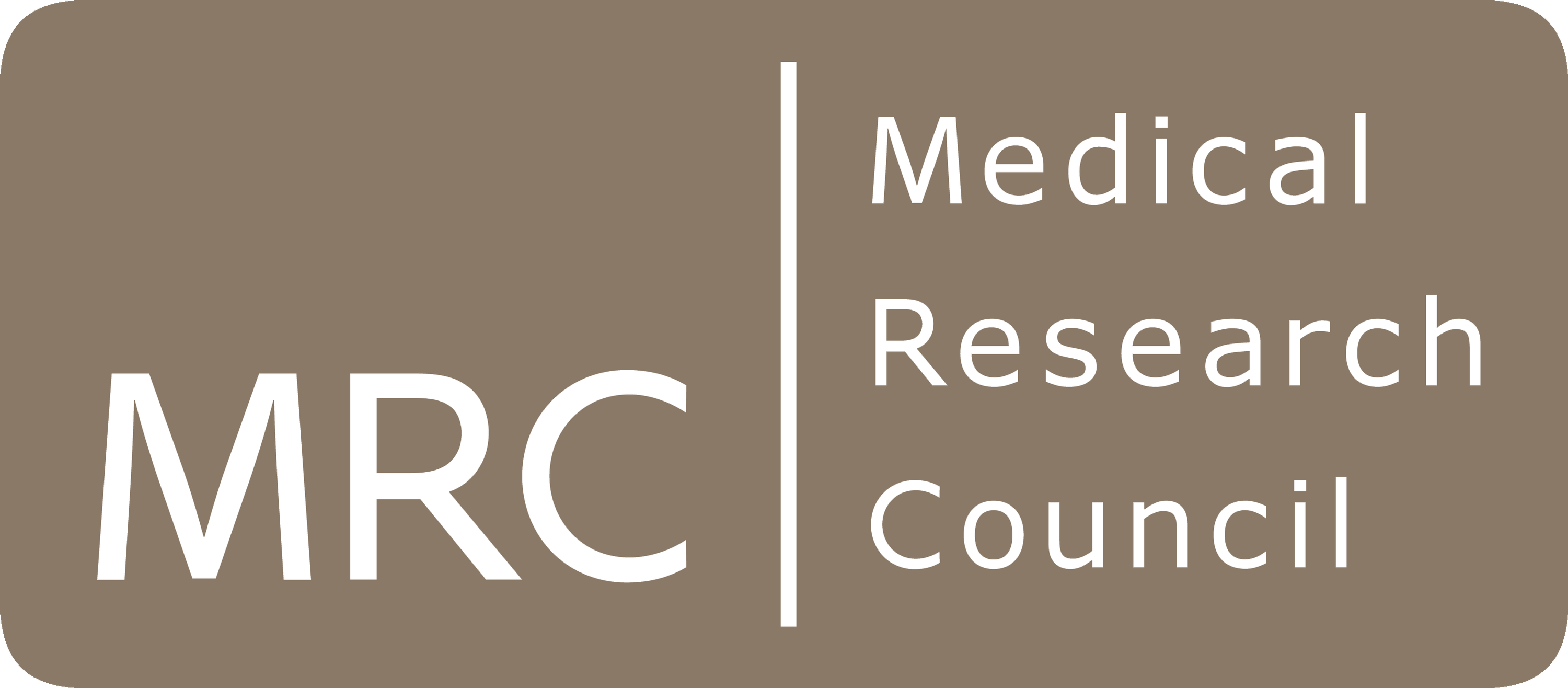
Medical Research Council
AI-Empowered Organoid Platform
Cell Imaging
Generative AI
Foundation Models
Total Awards: £1,200,447.76
Awards to Imperial College London (fEC): £1,080,470.00
2025-2028
PI: Dr. Guang Yang

Medical Research Council
UKRI Funded Future Leaders Fellowship
UKRI2738 Phase IIMultimodal Fast Imaging
Generative AI
Foundation Models
Total Awards (fEC): £859,083.09
2026-2029
Sole PI: Dr. Guang Yang

Imperial College Healthcare NHS Trust- BRC Funding
AI-Based Prognosis Models For Progressive Lung Fibrosis Using Multimodal Data
Total Awards (fEC): £108,769.27
2022
Co-PI: Dr. Guang Yang

The Royal Society
4D-CINENet: Attentive Generative Adversarial Network Based Fast 4D Whole Heart CINE MRI
Total Awards (fEC): £44,909.20
2022-2025 (Extended)
Sole PI: Dr. Guang Yang

Imperial–Nanyang Technological University Collaboration Fund
Novel Noise Disentanglement Using Flow-based Joint Image and Noise Modelling: A Computational Imaging Application to Cardiovascular MR
Total Awards (fEC): £13,000
2022-2023
PI: Dr. Guang Yang
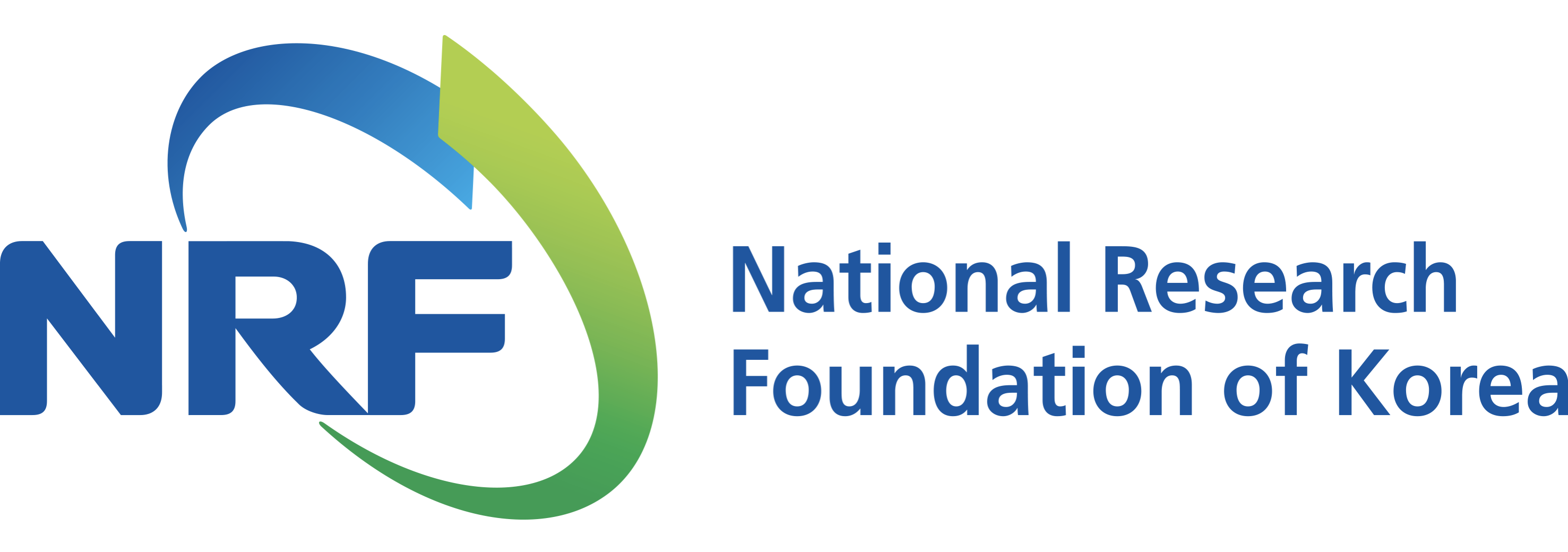
UKRI MRC with Korean Ministry of Science and ICT (MSIT) and National Research Foundation of Korea (NRF)
Fully Automatic Segmentation and Assessment of Atrial Scars for Atrial Fibrillation Patients Using LGE MRI: A Multicentre and Cross-National Research
Total Awards (fEC): £53,718.00
2021-2023 (Extended)
PI: Dr. Guang Yang

BHF Funded Project
PG/16/78/32402
LGE MRISegmentation
Domain Adaptation
GAN Based Reconstruction
Total Awards (fEC): £356,950.61
2017-2020
Co-PI: Dr. Guang Yang

Boehringer Ingelheim Funded Project
Data SynthesisCOVID-19 Research
Prognosis Prediction
Multifactorial Analysis
Total Awards (fEC): £1,339,284.44
2021-2024 (Extended)
Co-PI: Dr. Guang Yang

BHF Funded Project
TG/18/5/34111
SynthesisSegmentation
Fast Imaging
Velocity Mapping
Awards: £27,617
2021-2022
Co-PI: Dr. Guang Yang

Multicentre Validation
Detection/Classification
LGE CMR Data Analysis
Total Awards (fEC): £53,718.00
2021-2022
PI: Dr. Guang Yang

Data Harmonisation
Whole Heart Segmentation
Motion Abnormality Detection
Total Awards: £7,416.13
2016, 2017, 2021
PI: Dr. Guang Yang
Highlights
"Coming together is a beginning, staying together is progress, and working together is a success." — Henry Ford

Hiring
We are always looking for good colleagues.
If you are interested in medical data analysis, digital healthcare, AI applications please talk to us.
Postdocs and junior research fellows who are seeking for mentorship in Imperial College Research Fellowships, Marie Skłodowska-Curie Postdoc Fellowships, and Imperial-X Fellowships please contact Dr Guang Yang for further information.
No RA/PDRA openings now.New Opening: 1x RA/PDRA (Closing date 18 April 2025)New Opening: 2x Research Associates (Closing date 21 Dec 2023)New Opening: 2x Research Associates (Closing date 21 July 2022)New Opening: Research Associate (Closing date 23 November 2021)
£8M+
Funding Awards
40+
Team Members
50+
GPUs
420+
PI Publications
60
PI H-Index
19,000+
PI Google Citations
Publications
"Publish or perish"
Funders
"I am always ready to learn although I do not always like being taught." – Winston Churchill









